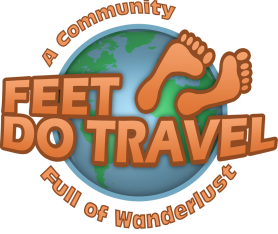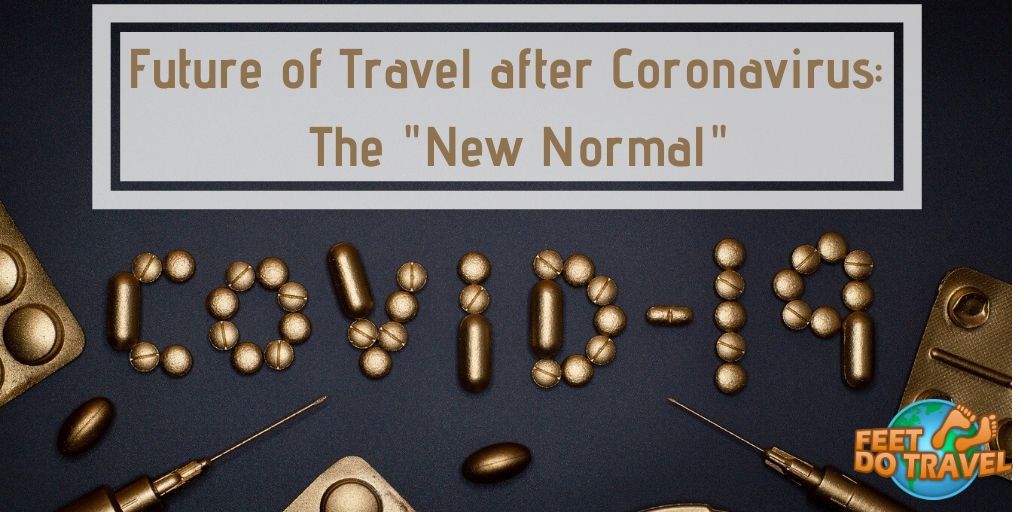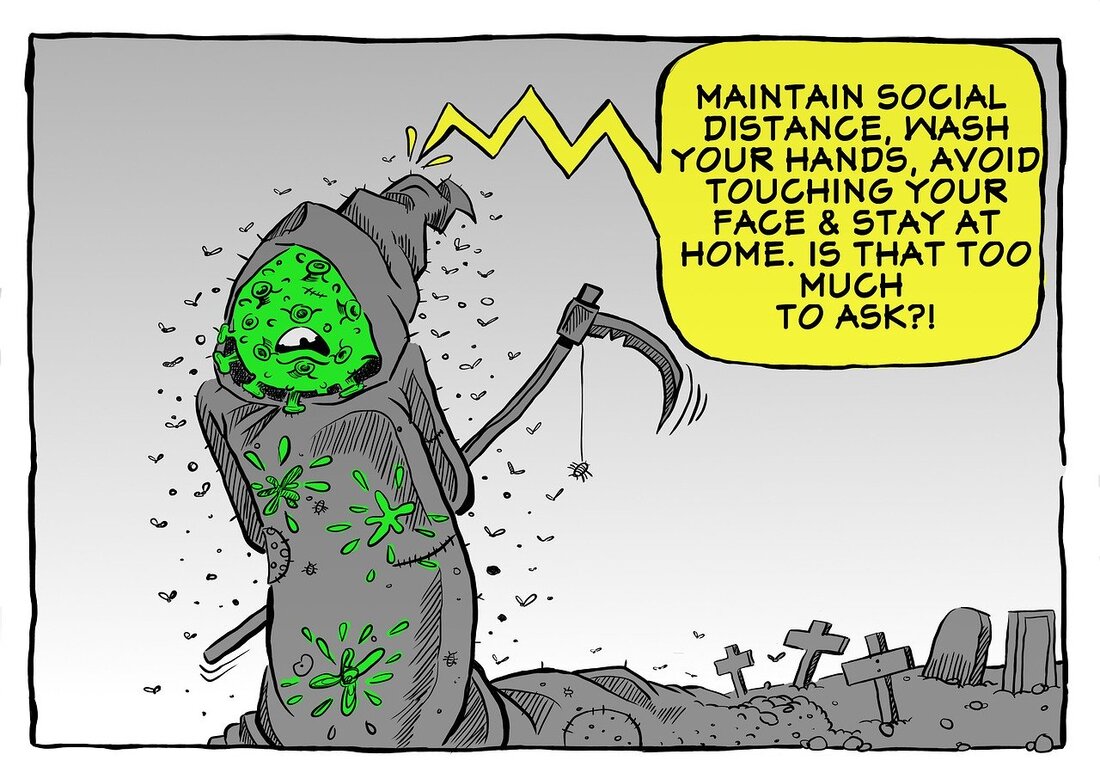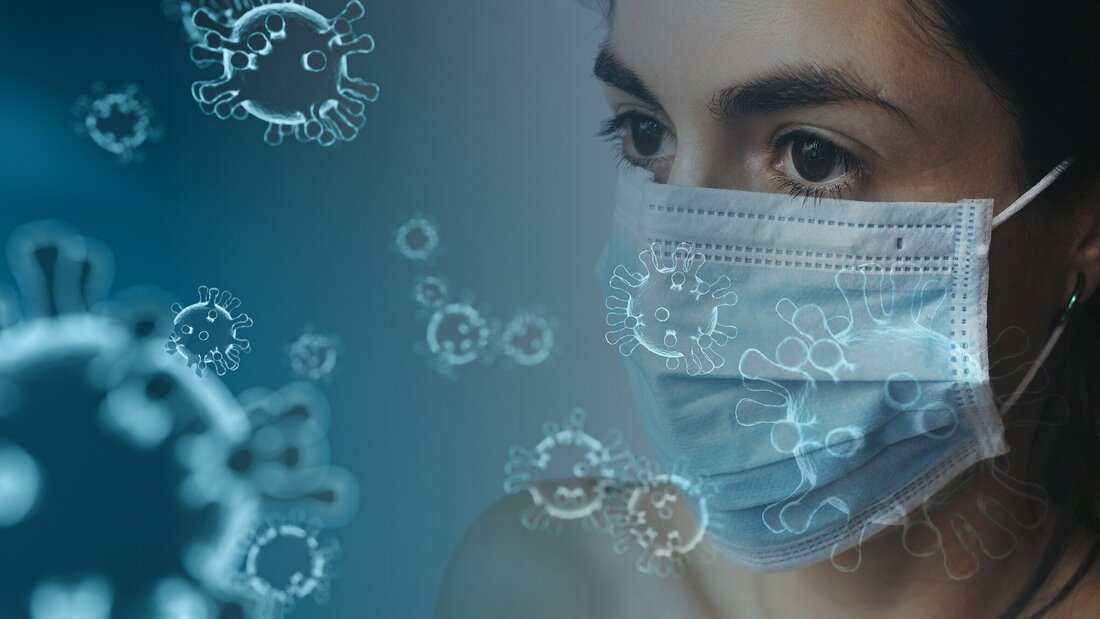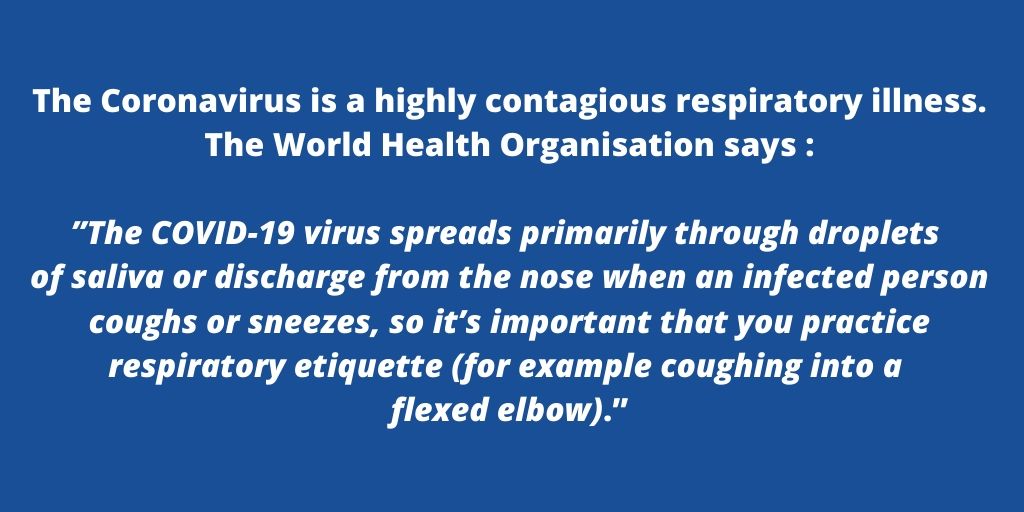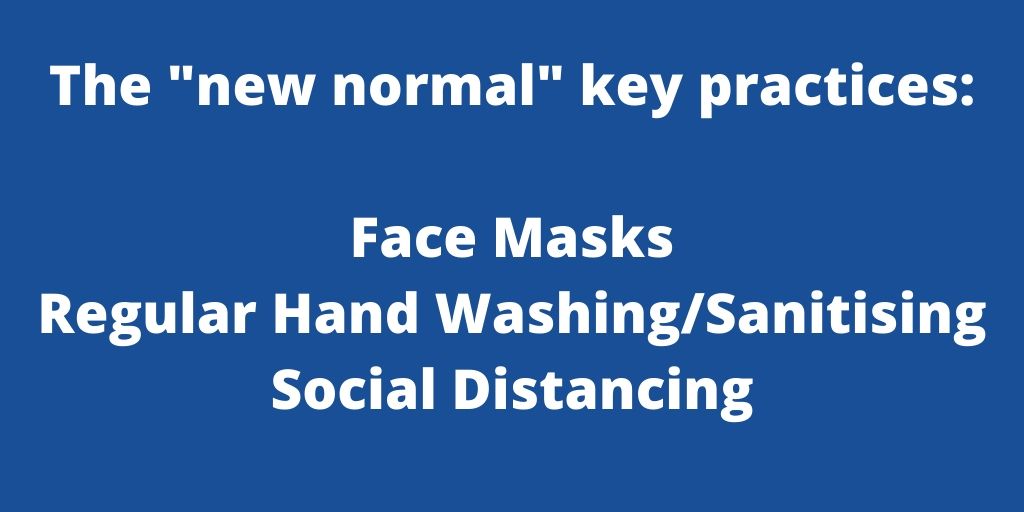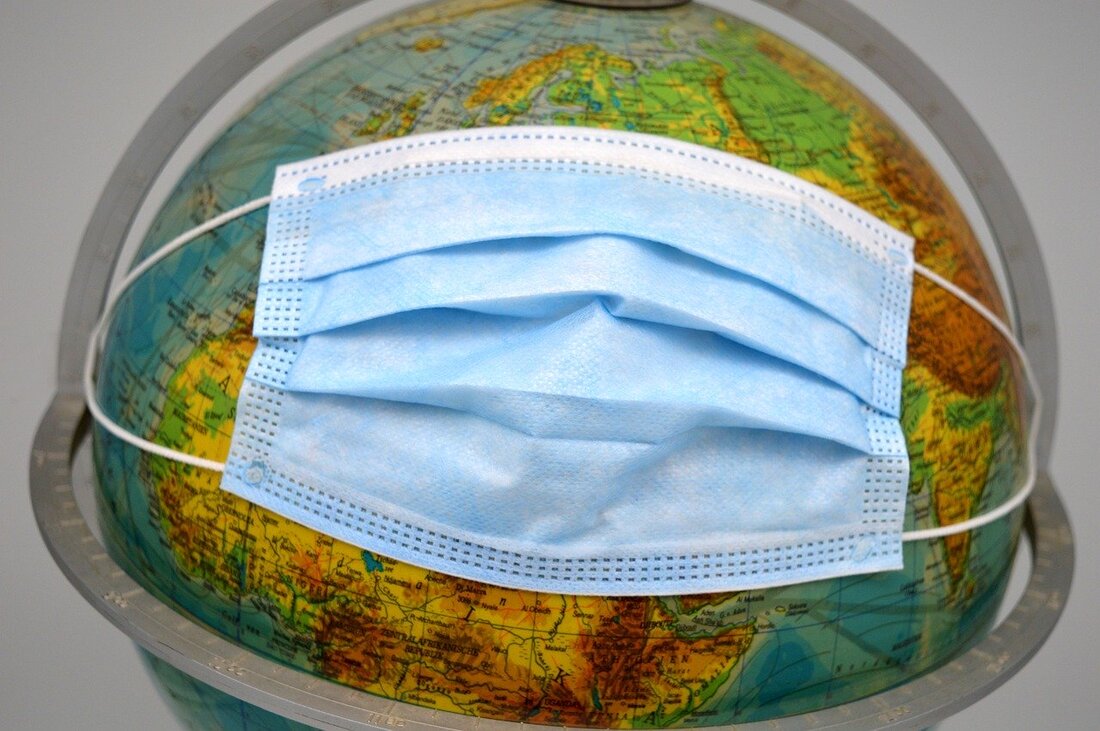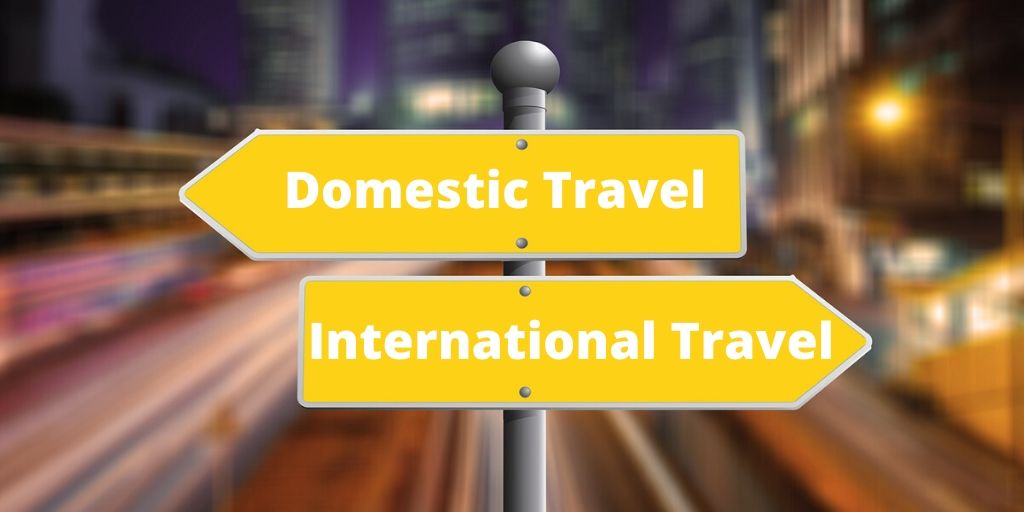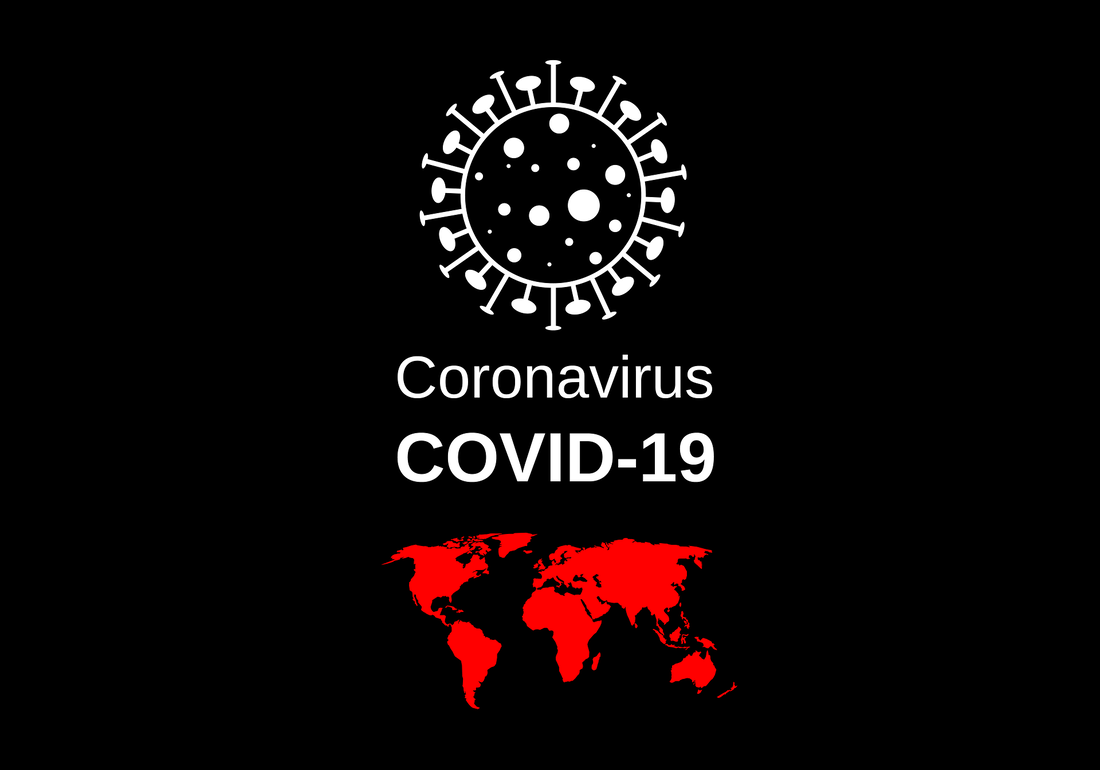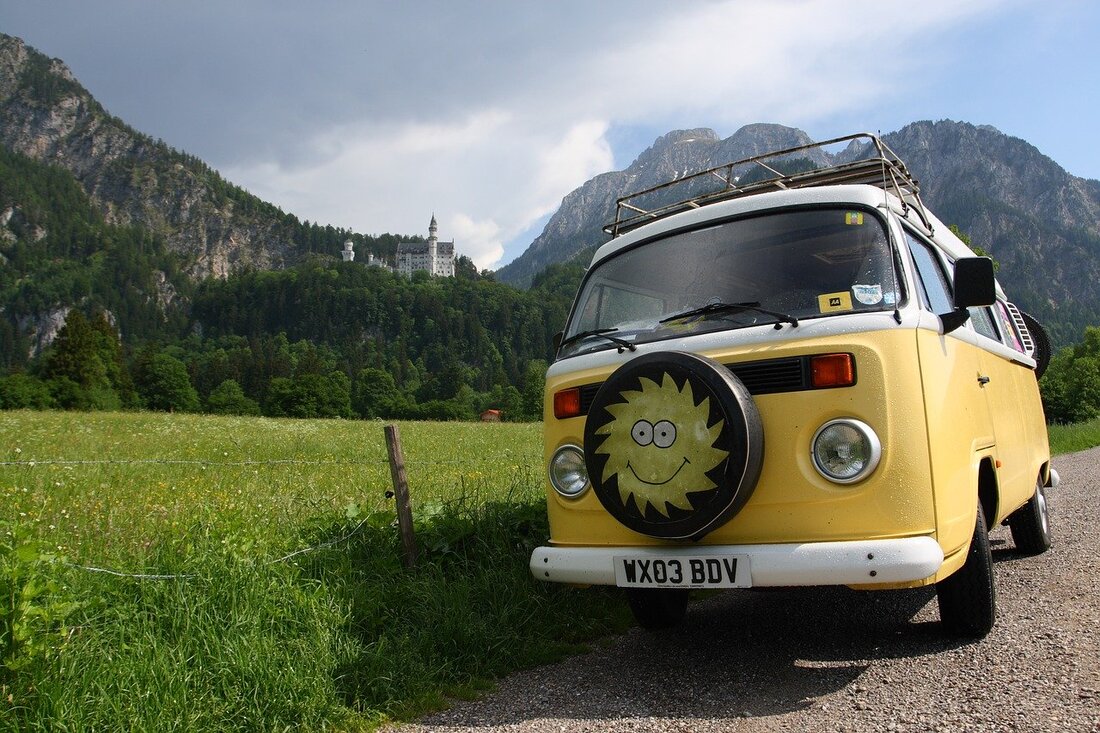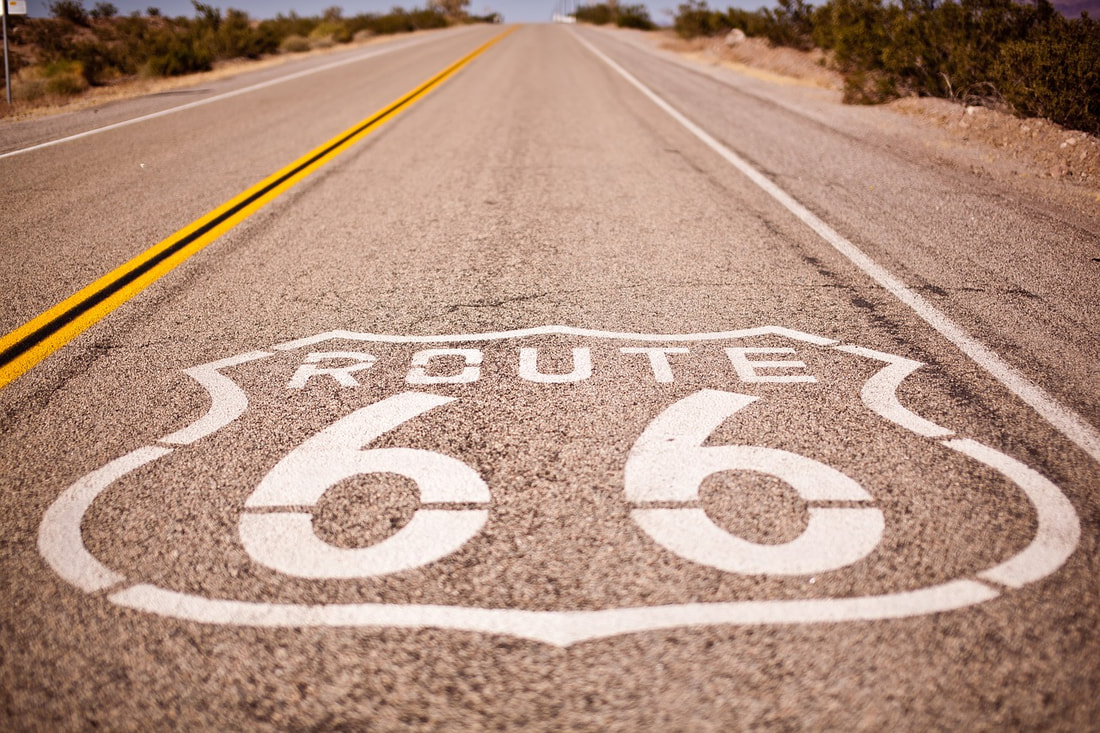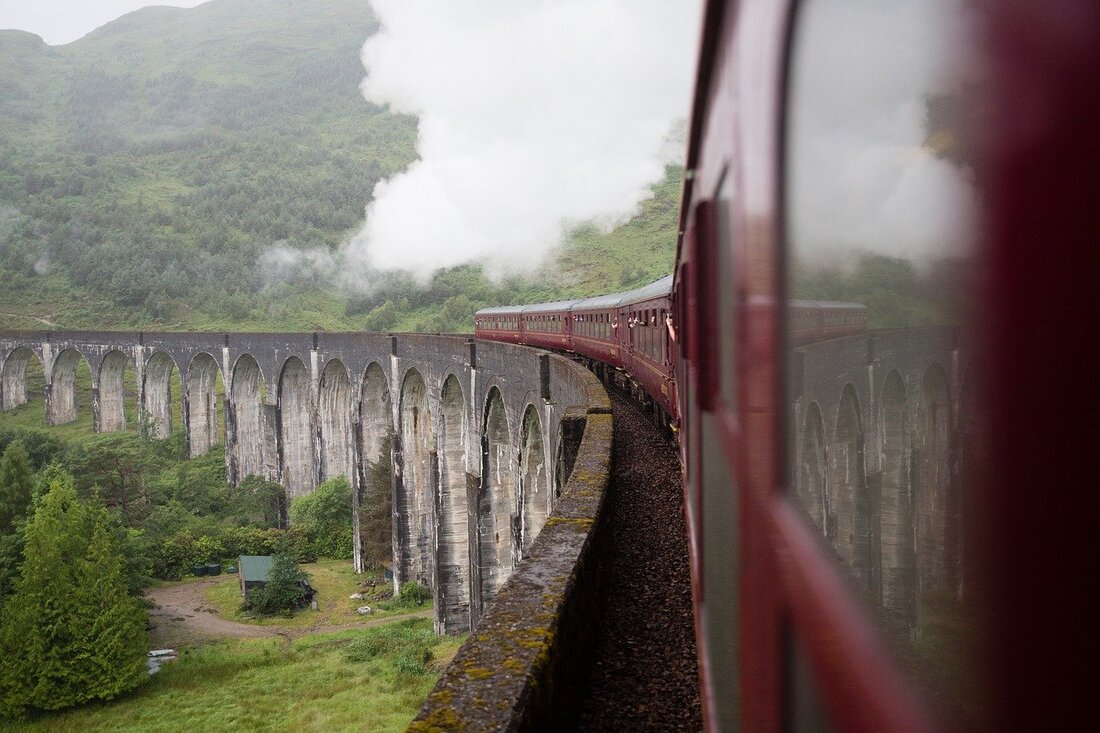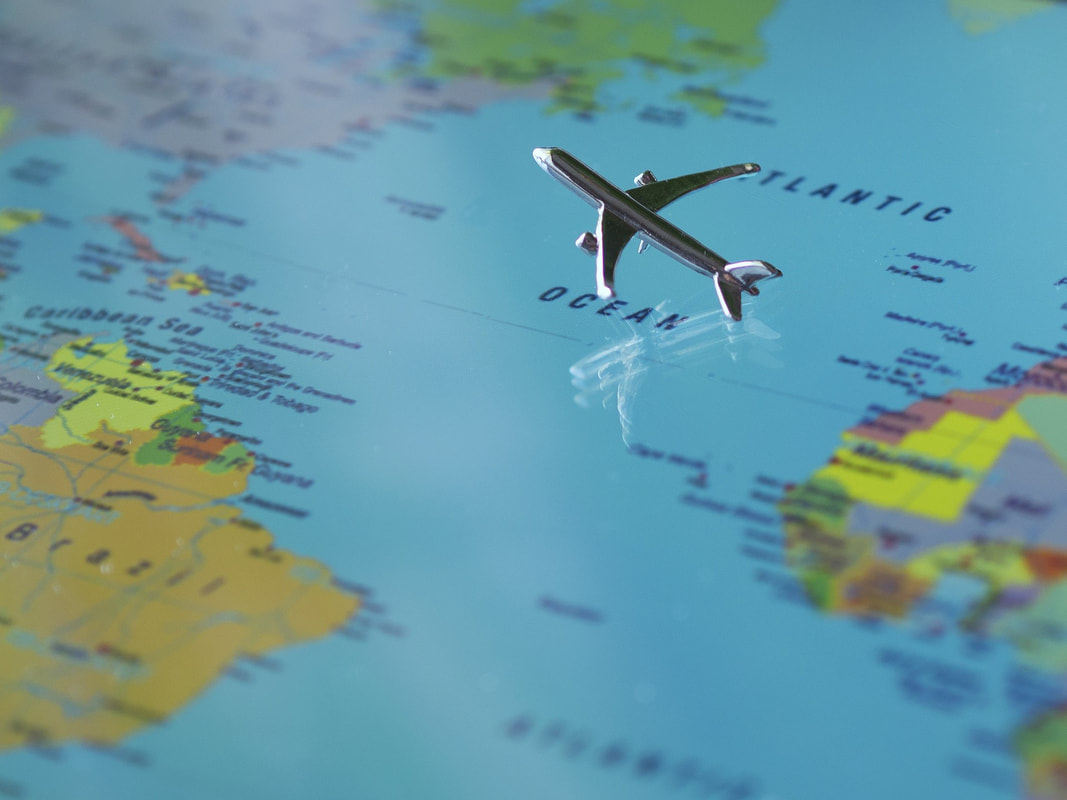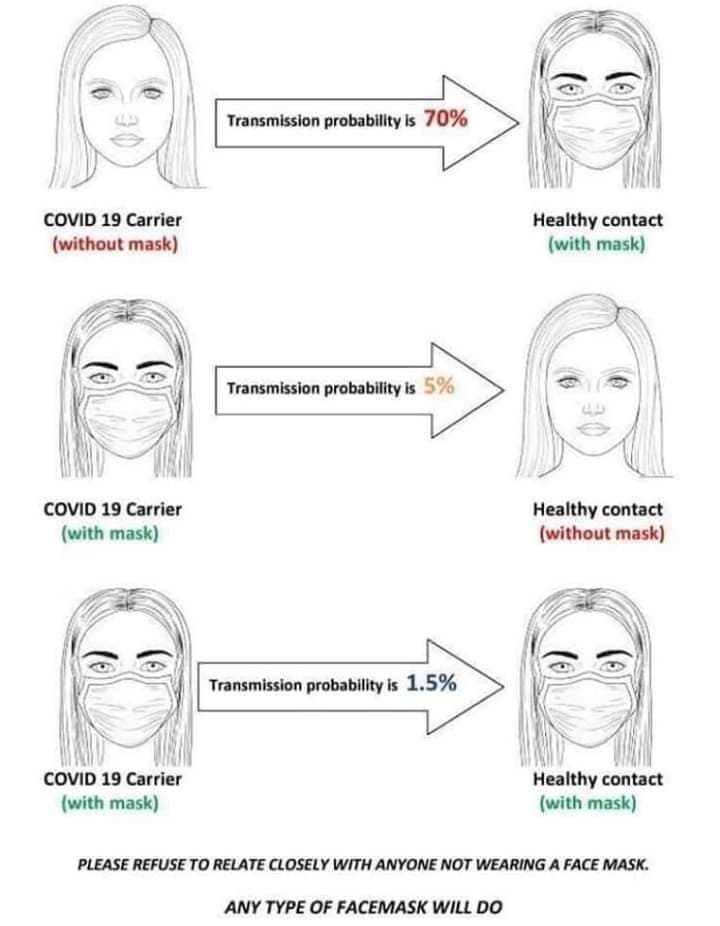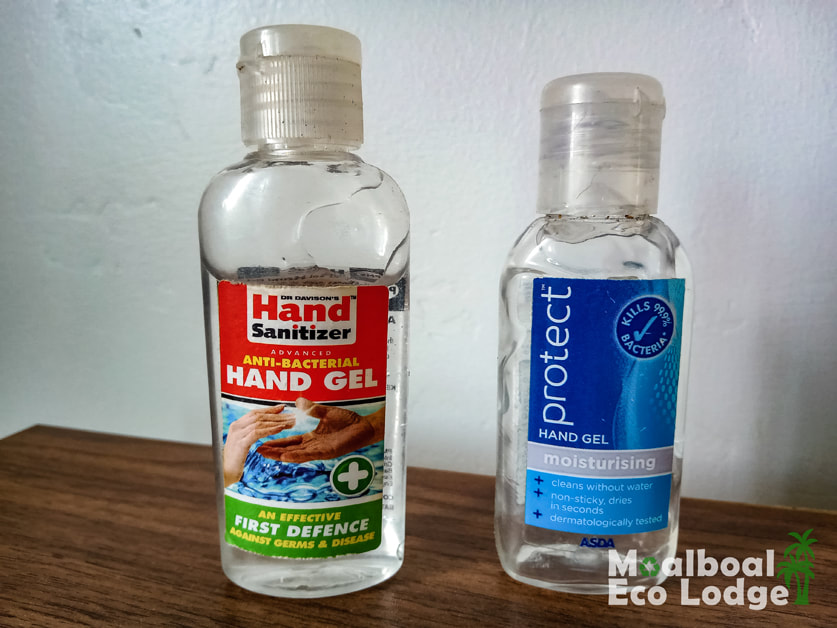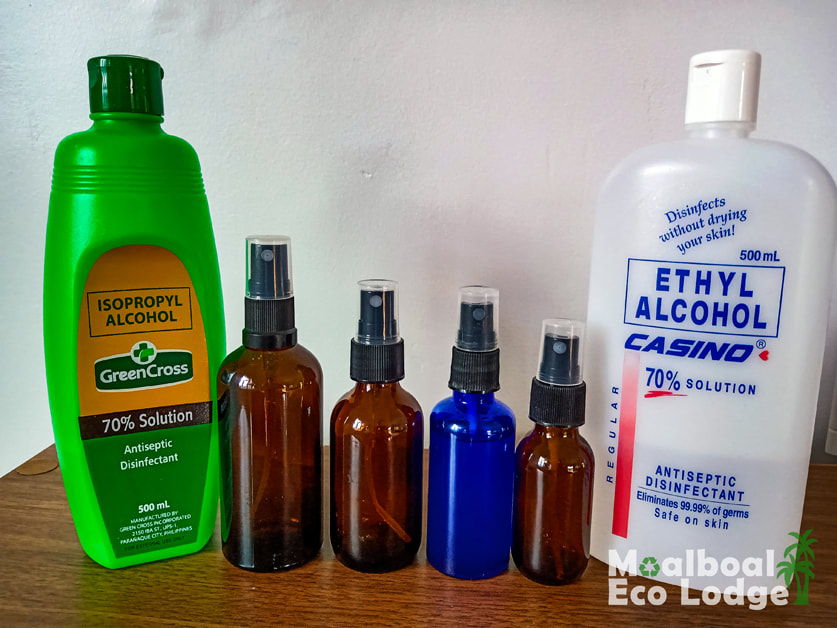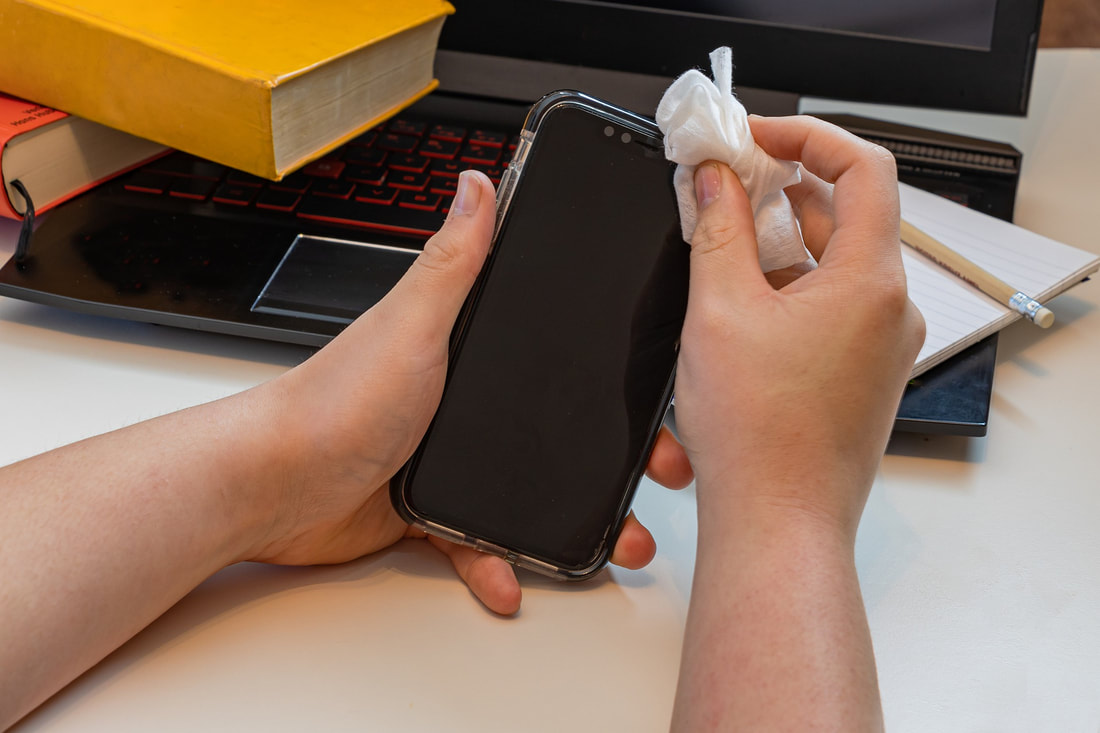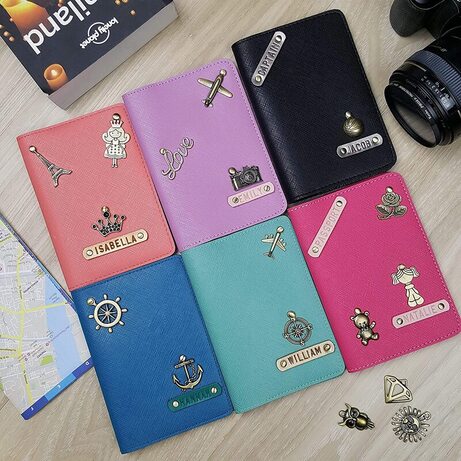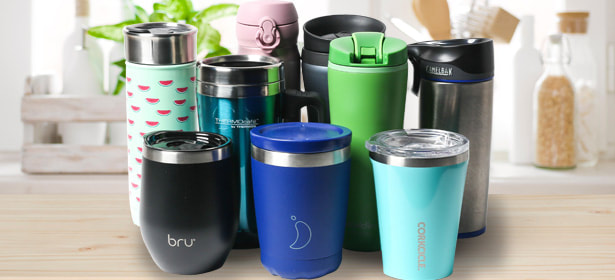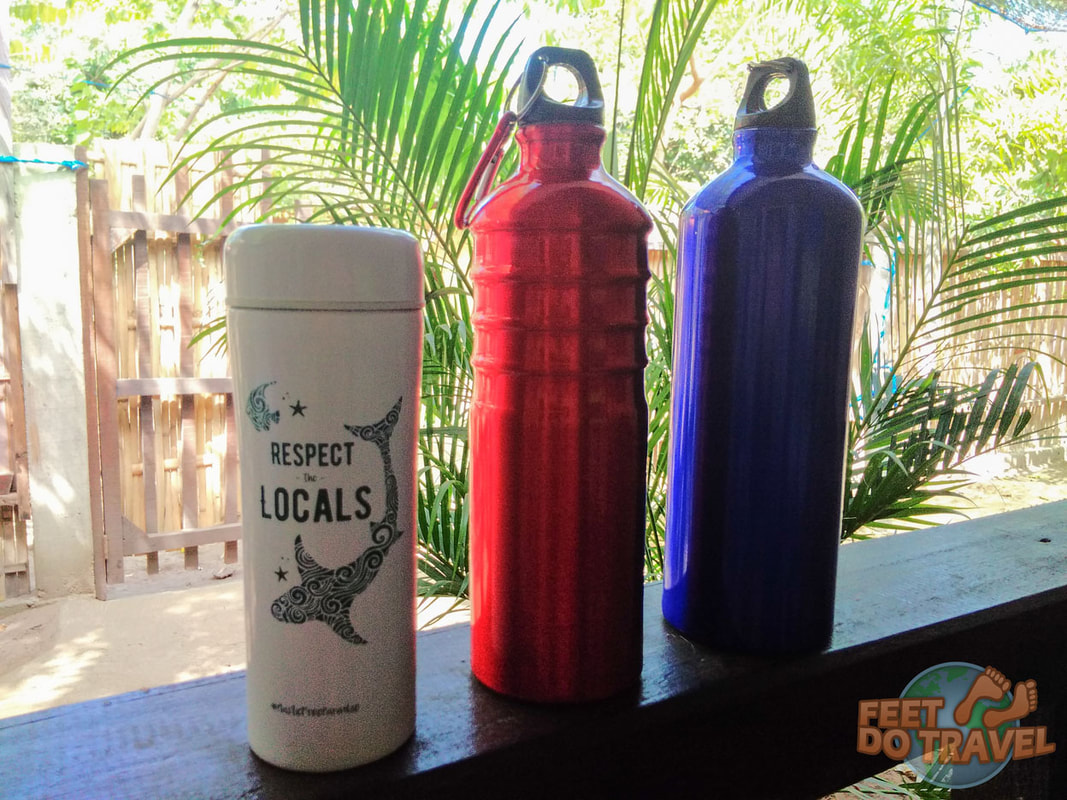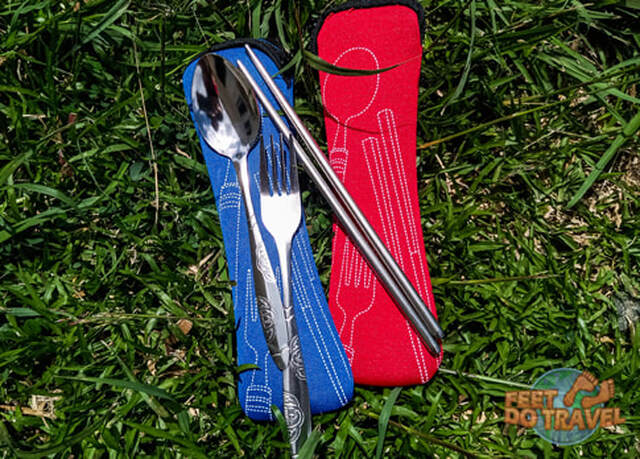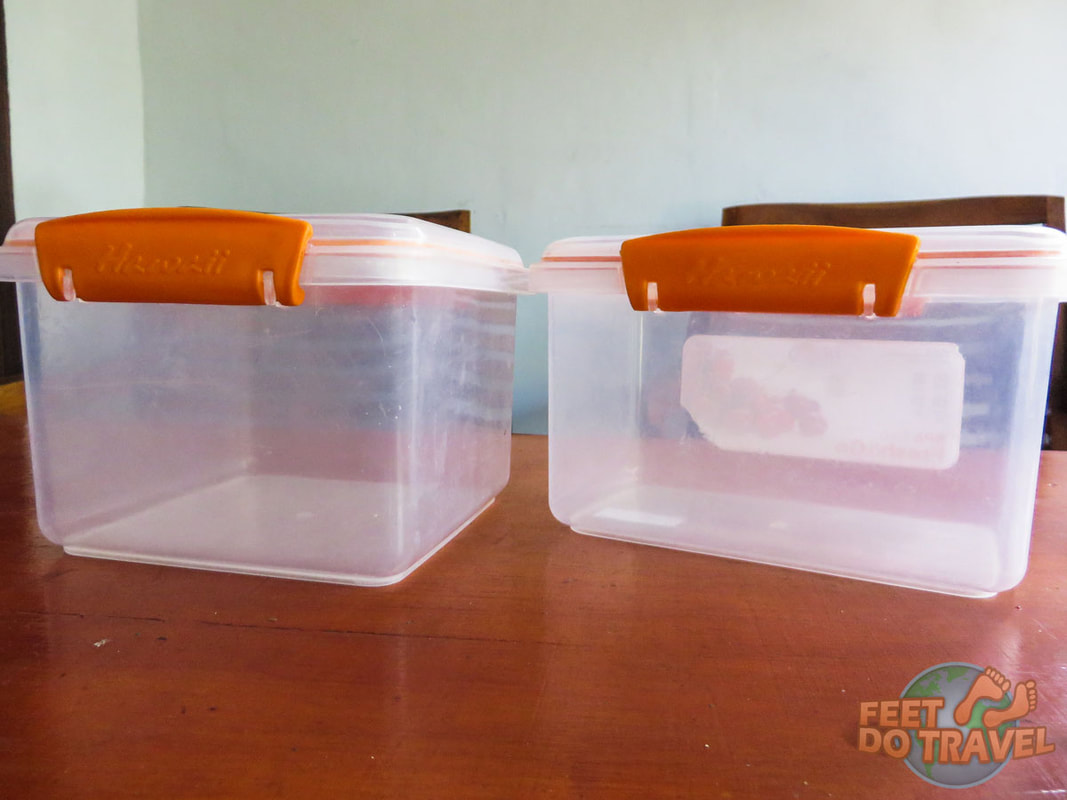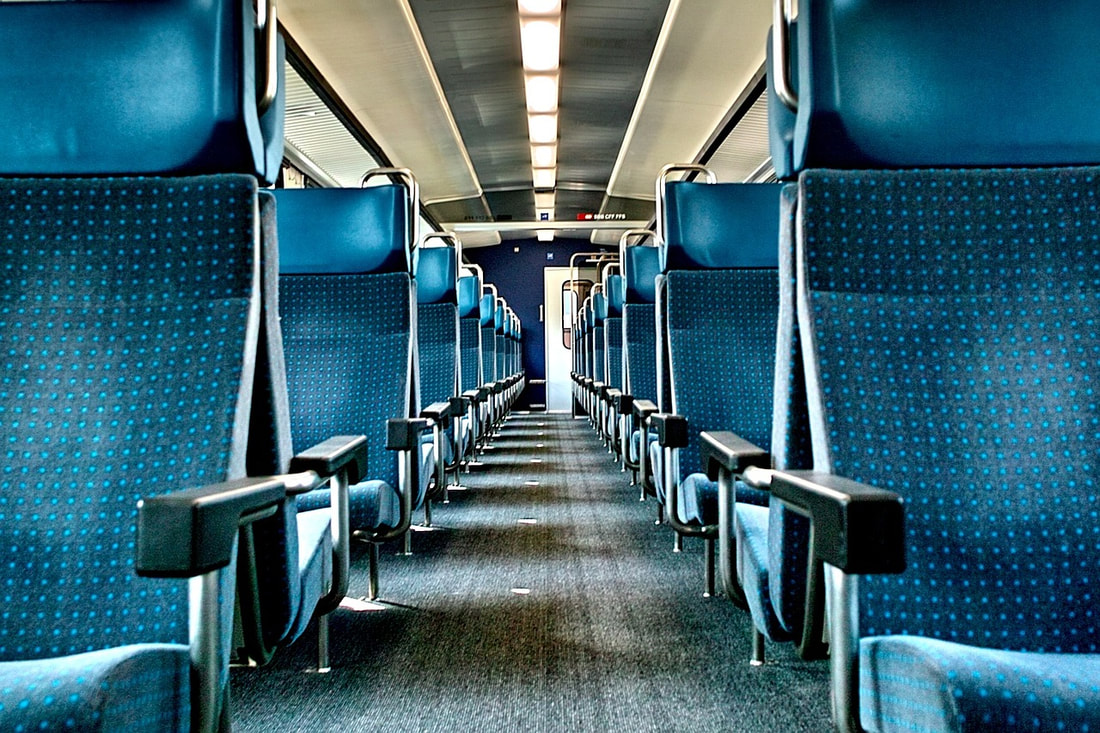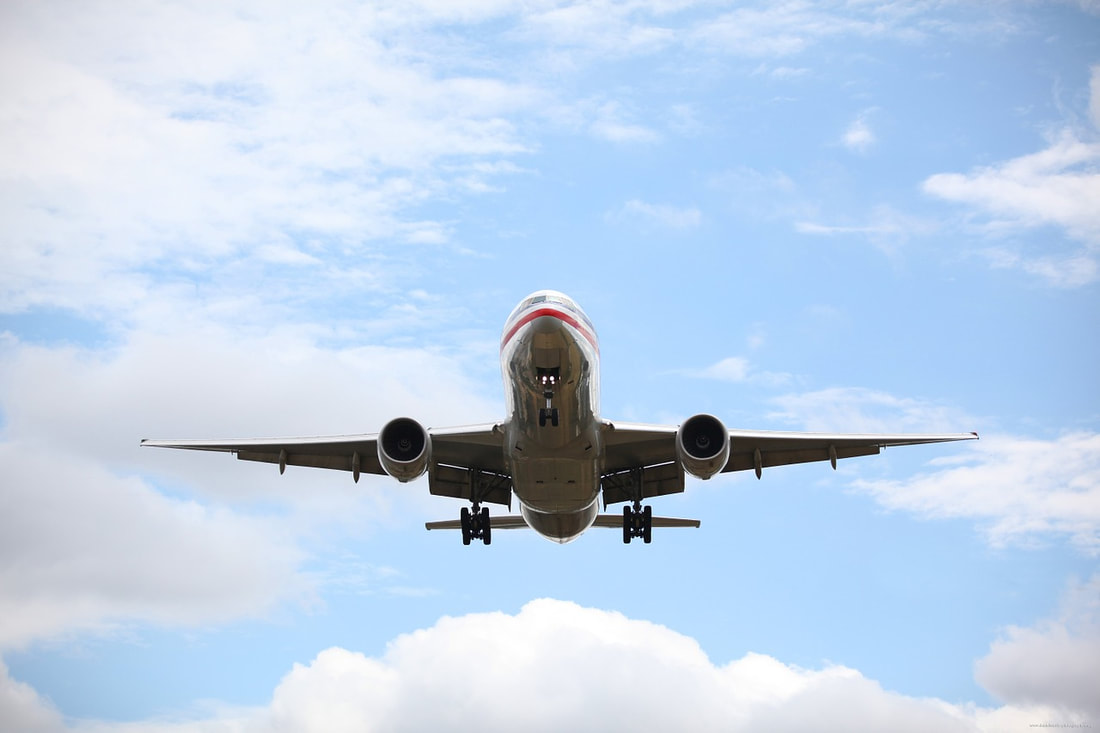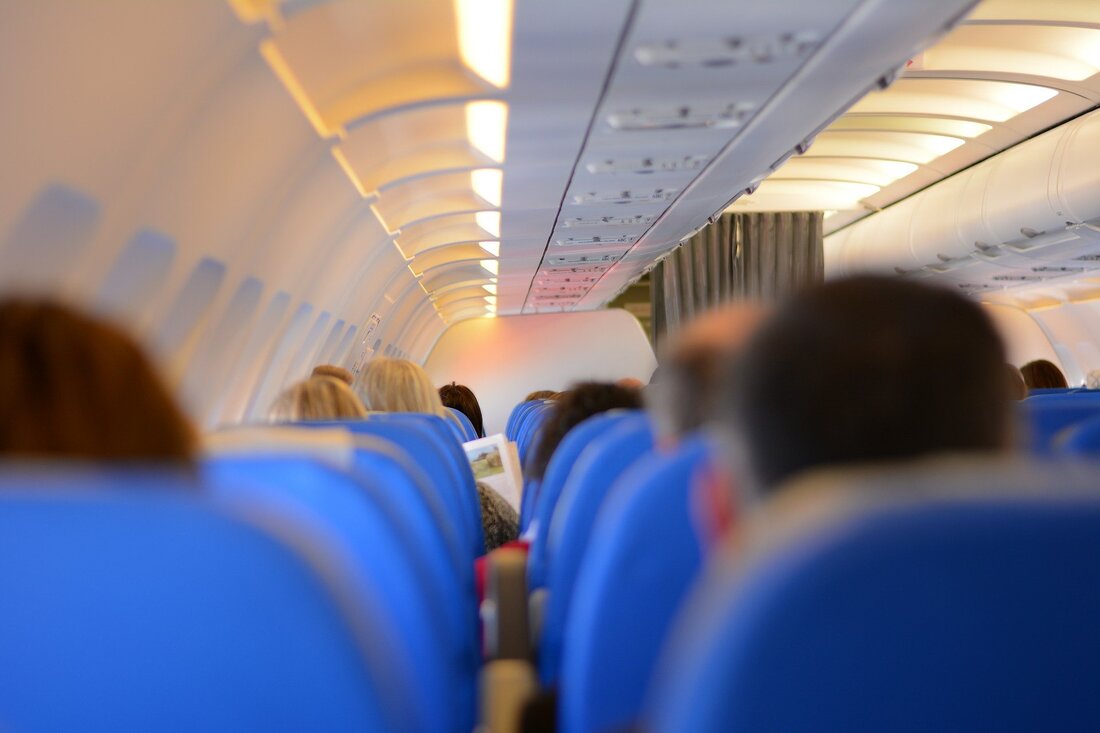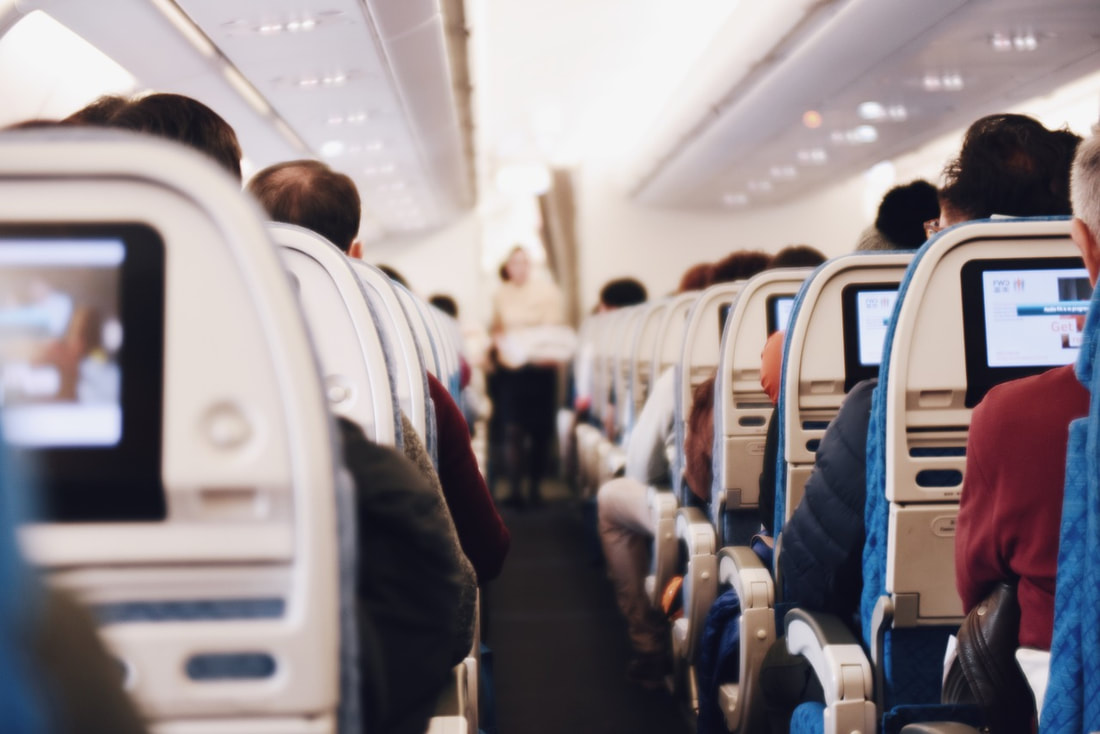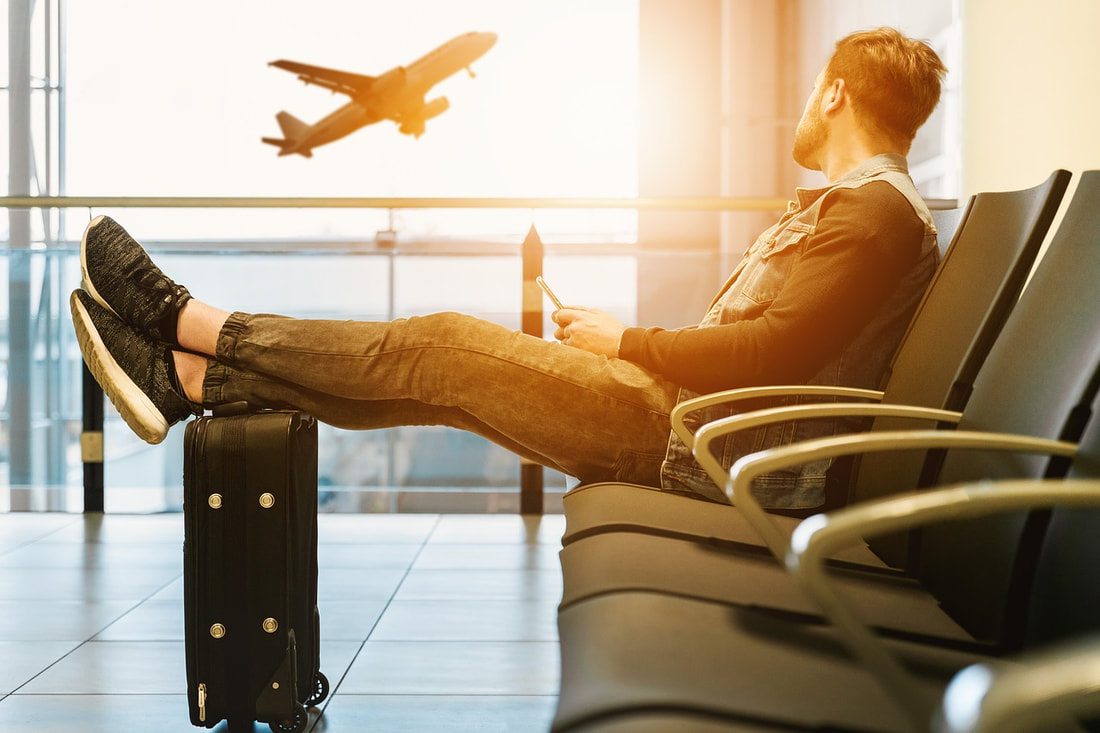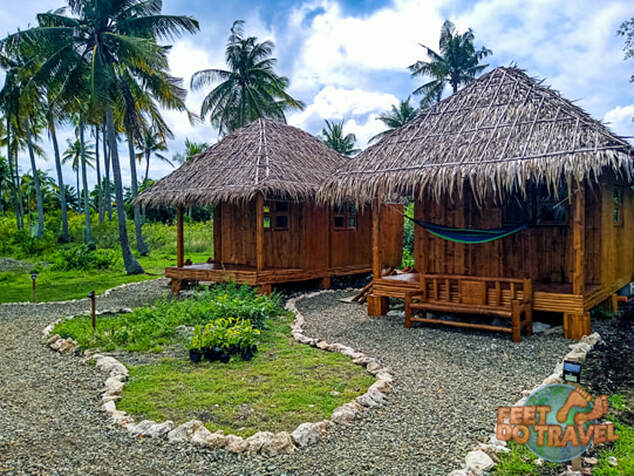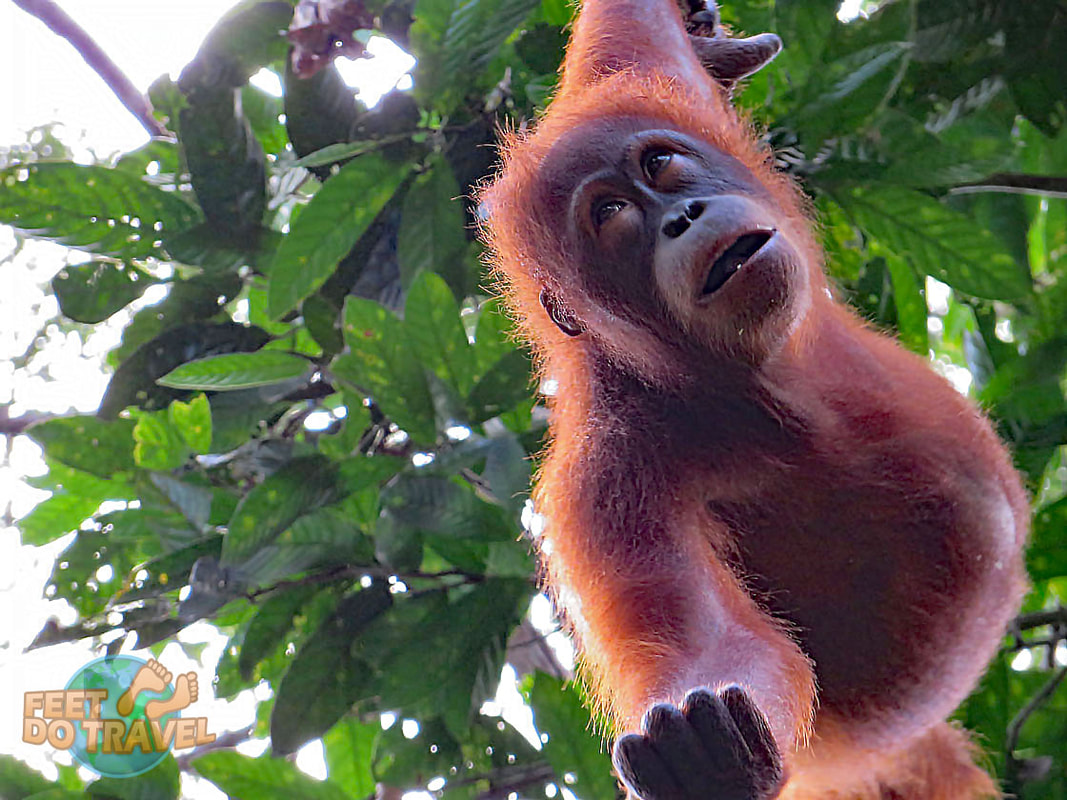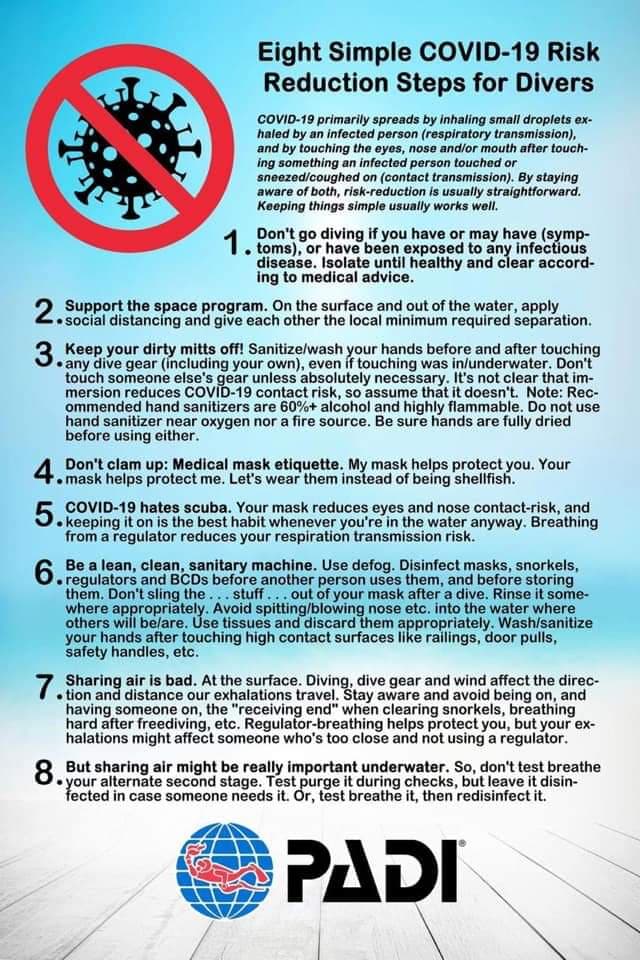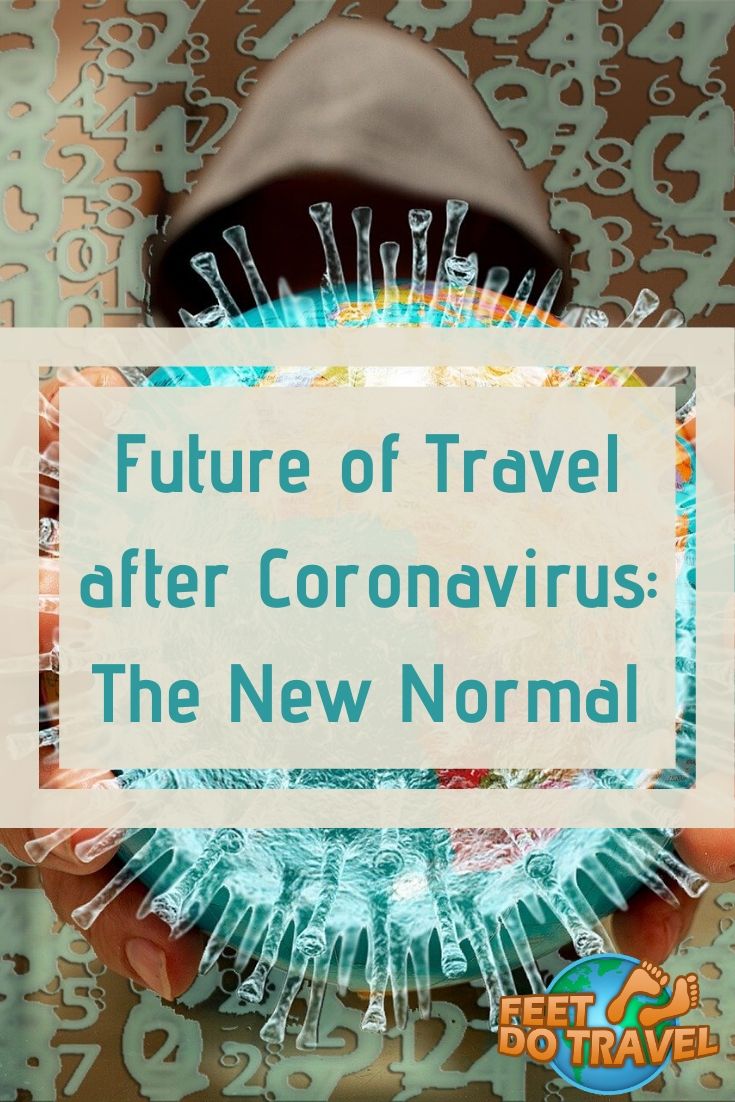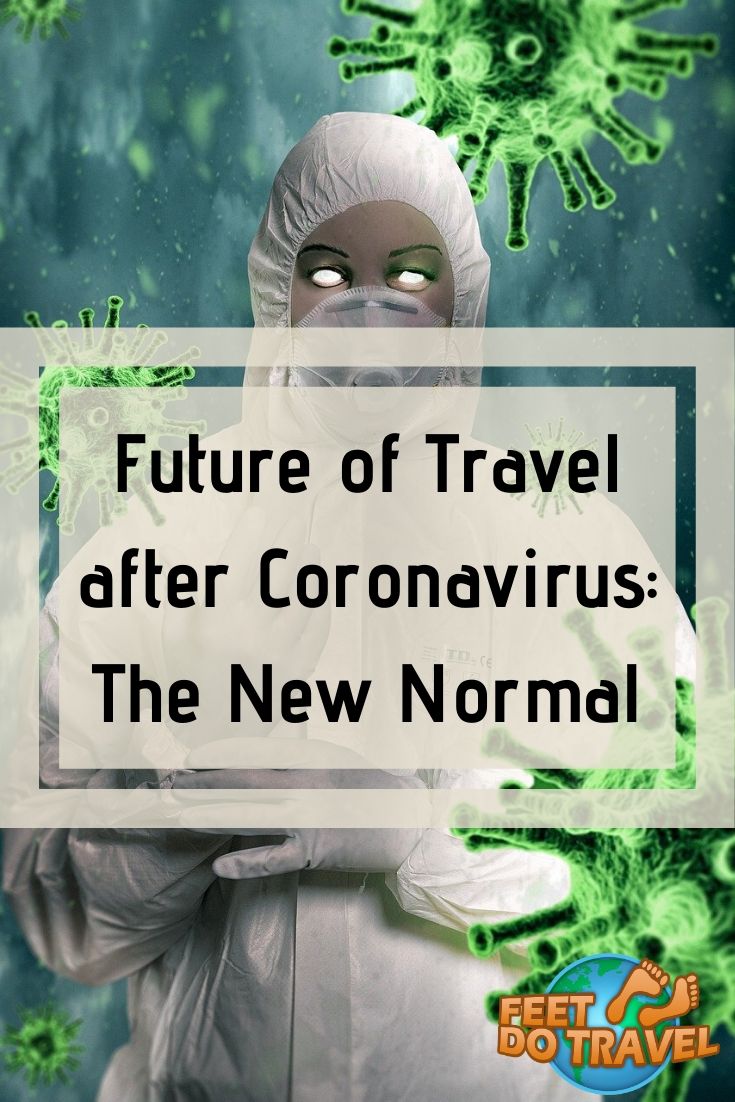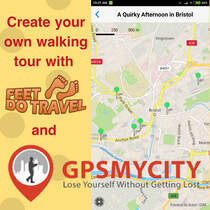What is the future of travel after the Covid-19 Pandemic? How will the future of travel look post-lockdown? What will be the “new normal”? How will quarantine affect the tourist industry?
Will travel ever be the same?
The truth is, no one knows. There are many speculations, but as travel and tourism ground to a halt due to worldwide quarantine and lockdowns, everyone is wondering what to expect when the world begins a “new normal”. As restrictions are eased, die-hard travellers regain hope they can start thinking about when they can travel again.
Travel as we knew it will have to change, at least in the immediate months/years after the novel Coronavirus until a vaccine is found. Life in general will be different, it has to be to ensure our health, and to hopefully stop a second wave/spike of Covid-19. As long as we continue to wear face masks in public, carry out regular hand washing/using alcohol sanitisers and physical/social distancing, the majority of us will be fine – however when we travel, we need to apply these same measures and more to ensure our continued safety.
Staycations, caravans, motorhomes, road trips, train travel, virtual travel - domestic travel will undoubtedly be on the rise post-quarantine, and this is the best way to give your economy a much needed boost after lockdown. International travel will still exist, but what precautions do you need to take? Will we see a rise in sustainable travel now that the reset button has been pressed?
Feet Do Travel discuss the future of travel after the Covid-19 pandemic: The New Normal.
Will travel ever be the same?
The truth is, no one knows. There are many speculations, but as travel and tourism ground to a halt due to worldwide quarantine and lockdowns, everyone is wondering what to expect when the world begins a “new normal”. As restrictions are eased, die-hard travellers regain hope they can start thinking about when they can travel again.
Travel as we knew it will have to change, at least in the immediate months/years after the novel Coronavirus until a vaccine is found. Life in general will be different, it has to be to ensure our health, and to hopefully stop a second wave/spike of Covid-19. As long as we continue to wear face masks in public, carry out regular hand washing/using alcohol sanitisers and physical/social distancing, the majority of us will be fine – however when we travel, we need to apply these same measures and more to ensure our continued safety.
Staycations, caravans, motorhomes, road trips, train travel, virtual travel - domestic travel will undoubtedly be on the rise post-quarantine, and this is the best way to give your economy a much needed boost after lockdown. International travel will still exist, but what precautions do you need to take? Will we see a rise in sustainable travel now that the reset button has been pressed?
Feet Do Travel discuss the future of travel after the Covid-19 pandemic: The New Normal.
Disclaimer: I am not a medical professional, and this article is based solely on the opinion of the author. The objective of this article to provide information on future travel to the best of my knowledge, gained through years of experience travelling, it is not to be perceived as professional advice. I have undertaken a lot of research to provide factual information, but there is still much uncertainty and things are rapidly changing.
Author’s Note: This article may feel overwhelming, it did to me when I was carrying out research. However, the underlying message is clear – if we continue with the three key principles of wearing a mask in public, regular hand washing/sanitising and social distancing, the majority of us will be fine. There are many things to consider when we enter the “new normal”, and right now everything is magnified because no one knows what the future holds. We will not be free from this virus until a vaccine is found, and no one knows when that will be, but we have to start living again, which can include travel. With the lockdowns, we have all placed our lives on hold for long enough, and we cannot continue living in fear; a healthy respect for the virus and taking precautions yes, but not fear. Take from this article information you find useful, and do what is right for you. Most importantly, stay safe.
Author’s Note: This article may feel overwhelming, it did to me when I was carrying out research. However, the underlying message is clear – if we continue with the three key principles of wearing a mask in public, regular hand washing/sanitising and social distancing, the majority of us will be fine. There are many things to consider when we enter the “new normal”, and right now everything is magnified because no one knows what the future holds. We will not be free from this virus until a vaccine is found, and no one knows when that will be, but we have to start living again, which can include travel. With the lockdowns, we have all placed our lives on hold for long enough, and we cannot continue living in fear; a healthy respect for the virus and taking precautions yes, but not fear. Take from this article information you find useful, and do what is right for you. Most importantly, stay safe.
Why do we need to take precautions when travelling after Coronavirus lockdown?
Unless you have been hiding under a rock during 2020, you will know that on 11 March, the World Health Organisation (WHO) declared the highly contagious Covid-19 outbreak as a pandemic (also known as Coronavirus). To date it has affected at least 188 out of the world’s 196 countries.
Millions of people have caught the virus, hundreds of thousands have died – and at the time of writing, Covid-19 has only been around for a few months so this number continues to grow very quickly (hence why I have not provided actual numbers).
We also need to remember that millions of people have recovered.
Unless you have been hiding under a rock during 2020, you will know that on 11 March, the World Health Organisation (WHO) declared the highly contagious Covid-19 outbreak as a pandemic (also known as Coronavirus). To date it has affected at least 188 out of the world’s 196 countries.
Millions of people have caught the virus, hundreds of thousands have died – and at the time of writing, Covid-19 has only been around for a few months so this number continues to grow very quickly (hence why I have not provided actual numbers).
We also need to remember that millions of people have recovered.
There are two main ways of catching Coronavirus. One is by breathing in droplets expelled when an infected person coughs, sneezes or talks near you. The second is by touching a surface contaminated by the virus, then touching your mouth, nose or eyes which transfers the virus to you.
Some people are asymptomatic meaning they have the virus, show no symptoms, but can still pass it on to someone who could catch the disease. Researchers have said the virus is already mutating so some people only show mild symptoms, whereas for others it is deadly or fatal.
Research on viruses similar to Coronavirus has shown it can live on various surfaces for several hours up to several days (depending on the type of surface, temperature, humidity etc).
This is why face masks and hand sanitising have been the strong message throughout the Coronavirus pandemic. The more people we interact with, the more chance we have of catching it, hence why physical distancing (known as social distancing) is very important.
Some people are asymptomatic meaning they have the virus, show no symptoms, but can still pass it on to someone who could catch the disease. Researchers have said the virus is already mutating so some people only show mild symptoms, whereas for others it is deadly or fatal.
Research on viruses similar to Coronavirus has shown it can live on various surfaces for several hours up to several days (depending on the type of surface, temperature, humidity etc).
- Remains in the air – up to 3 hours
- Copper & paper (including money) – up to 4 hours
- Cardboard – up to 24 hours
- Wood & clothing– up to 2 days
- Glass – up to 4 days
- Plastic & stainless steel – 3 – 7 days
This is why face masks and hand sanitising have been the strong message throughout the Coronavirus pandemic. The more people we interact with, the more chance we have of catching it, hence why physical distancing (known as social distancing) is very important.
Big money is involved in the tourist industry, and it’s understandable businesses affected by lack of tourists will want to operate as quickly as possible. The global travel and tourism industry in 2019 was worth US $9.25 trillion providing 319 million people with jobs worldwide, contributing to over 10% of the world’s economy.
If we don’t take precautions when we are allowed to travel again, the world may experience another 1918 Spanish Flu Pandemic in which 50 million people died worldwide. It was the second wave of the virus which killed the most number of people, and as of May 2020, we are only experiencing the first attack.
However it's not all doom and gloom, as long as we continue to carry out the three key practices, the majority of us won't have any problems at all. With all the new procedures in place for the tourism and travel industry, so much is being done to stop the spread of Covid-19. These new guidelines will help us live our lives again, and this will be the "new normal".
If we don’t take precautions when we are allowed to travel again, the world may experience another 1918 Spanish Flu Pandemic in which 50 million people died worldwide. It was the second wave of the virus which killed the most number of people, and as of May 2020, we are only experiencing the first attack.
However it's not all doom and gloom, as long as we continue to carry out the three key practices, the majority of us won't have any problems at all. With all the new procedures in place for the tourism and travel industry, so much is being done to stop the spread of Covid-19. These new guidelines will help us live our lives again, and this will be the "new normal".
How have Countries handled the Coronavirus outbreak?
With regard to the number of cases and fatalities, some Countries handled the outbreak well, and others not so much. The economy was a huge deciding factor in deciding when/if to put a Country on lockdown. There are many Countries recording low cases/deaths, and there are also Countries who are starting to show very high numbers. I have chosen these four Countries as examples of good and bad, purely because they have been highlighted in the media, providing easy access for research.
Vietnam and New Zealand acted fast and hard.
UK and USA didn’t react quickly.
Before you travel internationally, whichever Country you choose to visit first, I would recommend you research how their Government handled the Covid-19 outbreak. It may be a deciding factor as to where you visit, give you peace of mind you will be safe when you do travel, and know that your chosen Country is taking the necessary precautions to protect tourists and not just it's economy.
Yes it is good to kick-start the global economy again, and resume a "new normal" life, but not at the expense of your health, and there needs to be balance.
With regard to the number of cases and fatalities, some Countries handled the outbreak well, and others not so much. The economy was a huge deciding factor in deciding when/if to put a Country on lockdown. There are many Countries recording low cases/deaths, and there are also Countries who are starting to show very high numbers. I have chosen these four Countries as examples of good and bad, purely because they have been highlighted in the media, providing easy access for research.
Vietnam and New Zealand acted fast and hard.
- Both countries took the virus seriously from day one.
- Vietnam had 324 cases and Zero reported deaths.
- Vietnam's first case was reported on 22 January, and immediately strategic testing was carried out, aggressive contact tracing, and the message to the public was clear and effective.
- New Zealand had 1,504 cases and 21 deaths.
- New Zealand initiated strict lockdown within one month of receiving its first case.
- For both countries, anyone entering during lockdown were placed under a 14 day Government funded quarantine.
UK and USA didn’t react quickly.
- From day one both Countries gave mixed messages.
- So far, UK has the highest number of deaths in Europe, and the number of cases and deaths continues to rise. The Prime Minister of Great Britain contacted the disease spending three days in intensive care.
- USA have over 2 million cases and over 100,000 deaths so far, this increases daily.
- Upon entering the UK, no temperature or health checks were carried out, and it was only recommended (not enforced) you self-quarantine for 14 days. It was reported that 15,000 a day were entering unchecked.
- Despite the UK having Covid-19, Cheltenham Race Festival proceeded with its three day event attended by 250,000 people. Their defence was they saw Prime Minster Boris Johnson at an international rugby match three days before the races, so thought it was OK to proceed.
- USA saw thousands of protests against lockdown, and even though the number of cases are growing, after only one month of social distancing, various states begun easing restrictions.
Before you travel internationally, whichever Country you choose to visit first, I would recommend you research how their Government handled the Covid-19 outbreak. It may be a deciding factor as to where you visit, give you peace of mind you will be safe when you do travel, and know that your chosen Country is taking the necessary precautions to protect tourists and not just it's economy.
Yes it is good to kick-start the global economy again, and resume a "new normal" life, but not at the expense of your health, and there needs to be balance.
Domestic or International Travel - Which will you choose?
First you need to decide which type of travel you will choose - domestic or international.
With no one travelling by air or by road, the world has seen how quickly the air quality and pollution can improve when there is less movement. Will you choose to travel with a renewed sense of mindfulness for the planet, and opt for more sustainable travel, domestic travel, or slow travel by trains? Our future choices could drive how the tourist industry will be shaped, and changing our behaviour for the better could hopefully change the industry and benefit the environment..
One thing is certain, the immediate issue of over-tourism has been addressed, but for how long? Venice, Barcelona, Bali, Iceland, Macchu Picchu, Croatia – prior to Covid-19 they were over crowded, and mass tourism was a problem. Now there is a chance to negotiate how many tourists are allowed to enter. If you want to know which Countries are accepting international travellers, and which tourist landmarks/attractions are open, check out the Global Travel Reopening Tracker which provides live updates.
First you need to decide which type of travel you will choose - domestic or international.
With no one travelling by air or by road, the world has seen how quickly the air quality and pollution can improve when there is less movement. Will you choose to travel with a renewed sense of mindfulness for the planet, and opt for more sustainable travel, domestic travel, or slow travel by trains? Our future choices could drive how the tourist industry will be shaped, and changing our behaviour for the better could hopefully change the industry and benefit the environment..
One thing is certain, the immediate issue of over-tourism has been addressed, but for how long? Venice, Barcelona, Bali, Iceland, Macchu Picchu, Croatia – prior to Covid-19 they were over crowded, and mass tourism was a problem. Now there is a chance to negotiate how many tourists are allowed to enter. If you want to know which Countries are accepting international travellers, and which tourist landmarks/attractions are open, check out the Global Travel Reopening Tracker which provides live updates.
As for cruising, the cruise industry faced much criticism over the Coronavirus, and there are talks of lawsuits for the way certain cruise operators handled the pandemic. It has been shown that viruses on ships spread like wildfire, and they have been called a floating petri-dish. Cruising also has many negative effects on local economies, which means when tourists disembark on a day trip, the amount they contribute to a country’s economy isn’t enough to deal with pollution and over-crowding,
Domestic travel will be easier and safer, it’s also the best way of boosting your Country’s economy. The economy is the main reason many countries didn’t close their borders sooner.
International travel will require more planning, but it won’t be impossible. If a second spike or wave of the Coronavirus hits whilst you are away,returning home could be costly, problematic and stressful.
Make sure you carry out research before you travel:
Domestic travel will be easier and safer, it’s also the best way of boosting your Country’s economy. The economy is the main reason many countries didn’t close their borders sooner.
International travel will require more planning, but it won’t be impossible. If a second spike or wave of the Coronavirus hits whilst you are away,returning home could be costly, problematic and stressful.
Make sure you carry out research before you travel:
- Not all borders will be open to every Country
- Some countries may require a medical certificate no more than a few days old to show you are healthy
- You may have to self-quarantine at your own expense in your destination Country
- Travel restrictions may be in place
Campervan/RV/Motorhome/Caravan
For domestic travel, people who already own a self-contained car and accommodation will be laughing right now. This is the safest form of travel, and you will be interacting with very few people. I’m sure we will see a soar in campervan/caravan sales in the near future, as people opt for staycations, and it will be an investment for safer travel in the years ahead until a vaccine is found. If you have your own RV, it's worth looking into a generator to ensure you always have electricity when you're on the road. To see which one is right for you, here is a review of the 10 best RV generators to help you choose.
If you don’t already own a motorhome or caravan but have a car, the safest type of accommodation would be a caravan at a caravan park, especially if you are a family. They are self-contained, and you can cook your own meals to minimise how many people you see.
If you live in Europe, Asia, or the Americas, you may choose to travel to neighbouring countries.
For domestic travel, people who already own a self-contained car and accommodation will be laughing right now. This is the safest form of travel, and you will be interacting with very few people. I’m sure we will see a soar in campervan/caravan sales in the near future, as people opt for staycations, and it will be an investment for safer travel in the years ahead until a vaccine is found. If you have your own RV, it's worth looking into a generator to ensure you always have electricity when you're on the road. To see which one is right for you, here is a review of the 10 best RV generators to help you choose.
If you don’t already own a motorhome or caravan but have a car, the safest type of accommodation would be a caravan at a caravan park, especially if you are a family. They are self-contained, and you can cook your own meals to minimise how many people you see.
If you live in Europe, Asia, or the Americas, you may choose to travel to neighbouring countries.
Road Trips
A domestic road trip is another way of observing physical/social distancing, and protecting you and your travel partner(s). You can visit many different places on your own doorstep which you have always wanted to see. You will also feel safe in the knowledge you will be closer to home should you need to return for any reason. There are many road trip song lists on Spotify/available for download, so queue them up and sing like no one is listening.
I can see road trips booming post-Coronavirus, and it’s a fantastic way of boosting your own economy.
A domestic road trip is another way of observing physical/social distancing, and protecting you and your travel partner(s). You can visit many different places on your own doorstep which you have always wanted to see. You will also feel safe in the knowledge you will be closer to home should you need to return for any reason. There are many road trip song lists on Spotify/available for download, so queue them up and sing like no one is listening.
I can see road trips booming post-Coronavirus, and it’s a fantastic way of boosting your own economy.
Train Travel
Train travel is the best option if you do not drive, or if you don’t want to spend your holiday time “behind the wheel”. Domestic train travel allows you to sit back, relax, making the journey feel part of the holiday and less of a chore, after all, “It’s about the journey not the destination”.
International train travel will do the same and there are some fantastic, world famous scenic train journeys through Europe, Asia and around the world.
Do you want luxury? Take a trip on London’s Orient Express, Scotland’s Royal Scotsman, India’s Maharajas Express, Australia’s The Ghan, The Canadian or Asia’s Eastern and Oriental Express.
Trains are considered to be the most sustainable way to travel, producing far fewer carbon emissions than flying. One person flying Paris to Barcelona creates roughly 238kg of carbon dioxide emissions, but only 11kg if travelling by train.
Train travel is the best option if you do not drive, or if you don’t want to spend your holiday time “behind the wheel”. Domestic train travel allows you to sit back, relax, making the journey feel part of the holiday and less of a chore, after all, “It’s about the journey not the destination”.
International train travel will do the same and there are some fantastic, world famous scenic train journeys through Europe, Asia and around the world.
Do you want luxury? Take a trip on London’s Orient Express, Scotland’s Royal Scotsman, India’s Maharajas Express, Australia’s The Ghan, The Canadian or Asia’s Eastern and Oriental Express.
Trains are considered to be the most sustainable way to travel, producing far fewer carbon emissions than flying. One person flying Paris to Barcelona creates roughly 238kg of carbon dioxide emissions, but only 11kg if travelling by train.
Travel by Airplane – Domestic or International
For those of you wishing to fly, there are more risks involved, because there will be more contact with people. For international travel, wherever possible book your flight and accommodation using a credit card and check the small print for refunds and cancellations. Note that for long haul, in-flight entertainment touchscreens may be scrapped because of concerns regarding cleanliness.
The topic of future travel in general is complex, so I have dedicated a section to the following:
1a. & 1b. Before you travel: Items to take which will help with sanitisation, and also to help you have less contact with other people
2. Precautions when using public transport
3. Flying safely and with confidence
4. Accommodation and what you will need to be aware of
5. Tourist Attractions, Activities and Restaurants
6. Scuba Diving
1a. Before your journey – essential travel items
Regardless of travel guidelines, I feel there are a few essential items that should be carried at all times.
For those of you wishing to fly, there are more risks involved, because there will be more contact with people. For international travel, wherever possible book your flight and accommodation using a credit card and check the small print for refunds and cancellations. Note that for long haul, in-flight entertainment touchscreens may be scrapped because of concerns regarding cleanliness.
The topic of future travel in general is complex, so I have dedicated a section to the following:
1a. & 1b. Before you travel: Items to take which will help with sanitisation, and also to help you have less contact with other people
2. Precautions when using public transport
3. Flying safely and with confidence
4. Accommodation and what you will need to be aware of
5. Tourist Attractions, Activities and Restaurants
6. Scuba Diving
1a. Before your journey – essential travel items
Regardless of travel guidelines, I feel there are a few essential items that should be carried at all times.
|
Face Mask (Washable) This is mandatory. Whether you choose to use it or not, whether you think it helps or not, you will probably encounter places on your travels displaying “No Mask, No Entry” signs. To save the environment, a washable face mask is better than the throw-away plastic masks. |
Hand Sanitiser or Hand Gel
Carrying an alcohol hand sanitiser with you at all times is essential. You must use it immediately you have touched anything.
Antibacterial Spray and Tissues
In addition to hand sanitiser, carry your own antibacterial spray and tissues. It’s cheaper to make your own by reusing an existing spray bottle/buying a new one and filling it with either isopropyl or ethyl alcohol.
Use this spray before you touch anything, and whenever you feel it necessary. For trains or planes you should spray:
Antibacterial sanitising wipes could be used, but they are bad for the environment. They do not biodegrade and end up in landfill, so making your own antibacterial spray is cheaper, will last longer and is more eco friendly.
Carrying an alcohol hand sanitiser with you at all times is essential. You must use it immediately you have touched anything.
- Opened a door/car handle - sanitise
- Touched a handrail - sanitise
- Turned on a light - sanitise
- Handled cash - sanitise
- Used an ATM - sanitise
- Used the toilet - sanitise
Antibacterial Spray and Tissues
In addition to hand sanitiser, carry your own antibacterial spray and tissues. It’s cheaper to make your own by reusing an existing spray bottle/buying a new one and filling it with either isopropyl or ethyl alcohol.
Use this spray before you touch anything, and whenever you feel it necessary. For trains or planes you should spray:
- Armrests
- Headrests
- Seatbelt
- Entertainment touch-screens
- Food tray (which is good practice anyway)
- Overhead lockers
- Luggage handle (if a taxi driver, airport staff, coach driver etc have touched it)
Antibacterial sanitising wipes could be used, but they are bad for the environment. They do not biodegrade and end up in landfill, so making your own antibacterial spray is cheaper, will last longer and is more eco friendly.
Mobile Device Sanitiser
Mobile phones are a walking germ. Your phone contains 10 times more bacteria than a toilet seat, so you should be sanitising it regularly. If someone else has handled your mobile device, ie when checking in for a flight and your ticket is on your phone, sanitise it immediately.
You can make your own phone sanitiser which will clean your phone without damaging your screen by mixing 70% isopropyl alcohol with 30% water and add to a small spray bottle (make sure it's a different colour bottles to your general antibacterial spray, or add a sticker).
Make sure you use a soft lint-free micro-fibre cloth such as a camera lens cloth.
Don’t forget to include tablets and laptops.
Mobile phones are a walking germ. Your phone contains 10 times more bacteria than a toilet seat, so you should be sanitising it regularly. If someone else has handled your mobile device, ie when checking in for a flight and your ticket is on your phone, sanitise it immediately.
You can make your own phone sanitiser which will clean your phone without damaging your screen by mixing 70% isopropyl alcohol with 30% water and add to a small spray bottle (make sure it's a different colour bottles to your general antibacterial spray, or add a sticker).
Make sure you use a soft lint-free micro-fibre cloth such as a camera lens cloth.
Don’t forget to include tablets and laptops.
Passport Holder or Cover
When flying domestic or international, your passport may be handled multiple times, and germs can live on its surface for days. As a frequent flyer, you have probably never disinfected your passport before and you have remained healthy, but now is the time to take extra precaution in the “new normal” post Covid-19 times.
Having a passport cover will limit the amount of people touching your passport. Keep your passport inside the cover, remove it to hand to officials, then return it to the cover, and sanitise your hands. A passport cover is easier to clean than your actual passport, for example if you have an airport sticker or luggage tag on your passport, cleaning it may inadvertently remove this and cause a few disruptions.
Added bonus – you can choose a personalised or funky design!
When flying domestic or international, your passport may be handled multiple times, and germs can live on its surface for days. As a frequent flyer, you have probably never disinfected your passport before and you have remained healthy, but now is the time to take extra precaution in the “new normal” post Covid-19 times.
Having a passport cover will limit the amount of people touching your passport. Keep your passport inside the cover, remove it to hand to officials, then return it to the cover, and sanitise your hands. A passport cover is easier to clean than your actual passport, for example if you have an airport sticker or luggage tag on your passport, cleaning it may inadvertently remove this and cause a few disruptions.
Added bonus – you can choose a personalised or funky design!
A Pen
Yes a simple pen is also essential. You will undoubtedly be required to complete health questionnaires or quarantine cards, so having your own pen means you aren’t touching one which has been used by others.
Decent Travel Insurance
Despite all the precautions you may take, you cannot guarantee you will not catch Covid-19. Look into a decent insurance policy before you leave home, and double check that you would be covered if you fall sick. You need to ensure medical expenses are covered as a bare minimum.
1b. Items to limit your contact with people
If you want to limit the amount of contact people have with you, food and beverages need to be included in your list of items to carry. Think about it, you need to eat and drink, but you do not know who or how many people have handled your food or drinks container, and if they are following "new normal" Covid-19 compliant guidelines. If you can limit this number, the safer you will be, and these items can be used over and over for years.
Good for travelling generally, especially in post Coronavirus times, but also for hiking, camping and festivals.
Yes a simple pen is also essential. You will undoubtedly be required to complete health questionnaires or quarantine cards, so having your own pen means you aren’t touching one which has been used by others.
Decent Travel Insurance
Despite all the precautions you may take, you cannot guarantee you will not catch Covid-19. Look into a decent insurance policy before you leave home, and double check that you would be covered if you fall sick. You need to ensure medical expenses are covered as a bare minimum.
1b. Items to limit your contact with people
If you want to limit the amount of contact people have with you, food and beverages need to be included in your list of items to carry. Think about it, you need to eat and drink, but you do not know who or how many people have handled your food or drinks container, and if they are following "new normal" Covid-19 compliant guidelines. If you can limit this number, the safer you will be, and these items can be used over and over for years.
Good for travelling generally, especially in post Coronavirus times, but also for hiking, camping and festivals.
Refillable Coffee Cup or Travel Mug
A refillable coffee cup or travel mug is good practice for saving single-use plastics when you need a hot drink on your journey, and you know your mug is safe because only you have used it. If you can hand over your cup to be filled then do it (some chains such as Starbucks have temporarily suspended filling reusable coffee cups). If they insist on giving you a cup, pour the drink into your travel cup. Always spray your travel mug with an alcohol spray when it’s been returned to you, and sanitise your hands with gel.
A refillable coffee cup or travel mug is good practice for saving single-use plastics when you need a hot drink on your journey, and you know your mug is safe because only you have used it. If you can hand over your cup to be filled then do it (some chains such as Starbucks have temporarily suspended filling reusable coffee cups). If they insist on giving you a cup, pour the drink into your travel cup. Always spray your travel mug with an alcohol spray when it’s been returned to you, and sanitise your hands with gel.
Refillable Water Bottle
If you don’t have a travel mug which can double up as a water bottle, at the very least carry a refillable water bottle with you. This is good practice to avoid single-use plastics, but also means you can fill up your bottle knowing only you have touched it.
If you don’t have a travel mug which can double up as a water bottle, at the very least carry a refillable water bottle with you. This is good practice to avoid single-use plastics, but also means you can fill up your bottle knowing only you have touched it.
Reusable Cutlery Set or Spork
Carrying your own cutlery means you can eat any meal knowing your cutlery has been cleaned properly by you! It’s also good practice to avoid single use plastics. Some reusable cutlery sets have their own carry pouch. Alternatively, use a spork which is a 3-in-1 handy utensil used for camping/hiking; it has a fork one end with a small serrated knife edge, and a spoon the other end.
Carrying your own cutlery means you can eat any meal knowing your cutlery has been cleaned properly by you! It’s also good practice to avoid single use plastics. Some reusable cutlery sets have their own carry pouch. Alternatively, use a spork which is a 3-in-1 handy utensil used for camping/hiking; it has a fork one end with a small serrated knife edge, and a spoon the other end.
Tupperware containers
If you want food from restaurants but don’t feel they are observing social distancing, order take out! A Tupperware container not only helps reduce single use plastics for take out food, but are great for storing breakable items when travelling. Jewellery, hair accessories, reading glasses, sunglasses, antibacterial sprays – they can all be stored in your Tupperware container.
Take your own food and snacks (if possible)
When flying, some airlines may stop catering completely, or place pre-packaged meals or snacks on each passenger’s seat to minimise contact between crew and passengers. Train companies may also stop catering facilities on board for the same reason, but also to avoid queues.
When embarking on a long journey whether by train, car, coach, bus or plane, if you’re travelling during meal times, if possible make your own food and take it with you in a Tupperware container. This is the safest way of eating because you have prepared/packed it yourself, it will save you money, and the container can be used over and over for take-out/storing breakable items.
If you want food from restaurants but don’t feel they are observing social distancing, order take out! A Tupperware container not only helps reduce single use plastics for take out food, but are great for storing breakable items when travelling. Jewellery, hair accessories, reading glasses, sunglasses, antibacterial sprays – they can all be stored in your Tupperware container.
Take your own food and snacks (if possible)
When flying, some airlines may stop catering completely, or place pre-packaged meals or snacks on each passenger’s seat to minimise contact between crew and passengers. Train companies may also stop catering facilities on board for the same reason, but also to avoid queues.
When embarking on a long journey whether by train, car, coach, bus or plane, if you’re travelling during meal times, if possible make your own food and take it with you in a Tupperware container. This is the safest way of eating because you have prepared/packed it yourself, it will save you money, and the container can be used over and over for take-out/storing breakable items.
2. Precautions when using public transport
Domestic travel will return faster than international, and if you don’t have a motorhome/campervan/RV/Caravan or car, you need to be diligent. When using public transportation such as a bus, metro, tram, coach, train or flight, hopefully you will see staff and other travellers wearing face masks, however the key advice remains the same:
Make sure you give yourself plenty of time, add on at least an hour (two is better) to your journey. With physical/social distancing, queues will appear longer, and with stricter measures in place, procedures will take more time.
Domestic travel will return faster than international, and if you don’t have a motorhome/campervan/RV/Caravan or car, you need to be diligent. When using public transportation such as a bus, metro, tram, coach, train or flight, hopefully you will see staff and other travellers wearing face masks, however the key advice remains the same:
- Wear a face mask
- Sanitise surfaces and luggage handles
- Observe physical/social distancing
- Sanitise your hands after touching anything and before eating
- If possible, sit at least one seat away from the nearest passenger
Make sure you give yourself plenty of time, add on at least an hour (two is better) to your journey. With physical/social distancing, queues will appear longer, and with stricter measures in place, procedures will take more time.
3. Flying safely and with confidence
Airlines are desperate to fly as soon as they can, some are flying as early as June/July 2020. Millions (if not billions) of revenue has been lost, and now airlines and airports have to spend more money implementing strict hygiene measures.
Some airlines have pledged to keep the middle seat free, but whether this will happen, and how effective it would be remains to be seen. This will reduce the number of tickets an airline can sell, cut their profit margins, and possibly limit the amount they can spend on more effective preventative measures. It also means they need to recoup the cost and by loosing a third of ticket sales, they would need to increase prices.
If an airline has carried out repatriation flights from Coronavirus affected countries, they will have more experience than others with regard to handling Covid-19. Changes to future flights should be based on lessons learnt from repatriation, feedback from repatriated customers, medical advice, and should continue to evolve with the ever-changing climate.
Airlines are desperate to fly as soon as they can, some are flying as early as June/July 2020. Millions (if not billions) of revenue has been lost, and now airlines and airports have to spend more money implementing strict hygiene measures.
Some airlines have pledged to keep the middle seat free, but whether this will happen, and how effective it would be remains to be seen. This will reduce the number of tickets an airline can sell, cut their profit margins, and possibly limit the amount they can spend on more effective preventative measures. It also means they need to recoup the cost and by loosing a third of ticket sales, they would need to increase prices.
If an airline has carried out repatriation flights from Coronavirus affected countries, they will have more experience than others with regard to handling Covid-19. Changes to future flights should be based on lessons learnt from repatriation, feedback from repatriated customers, medical advice, and should continue to evolve with the ever-changing climate.
Qantas Group Medical Director says “Data shows that actual risk of catching Coronavirus on an aircraft is already extremely low. That’s due to a combination of factors, including the cabin air filtration system, the fact people don’t sit face-to-face, and the high backs of aircraft seats acting as a physical barrier. As far as the virus goes, an aircraft cabin is a very different environment to other forms of public transport”.
The IATA (International Air Transport Association) state the majority of modern, large, commercial aircraft have cabin air made up of 50% fresh air and 50% recirculated, filtered air which passes through a high efficiency particulate filter (HEPA) capturing 99% of virus and bacteria particles. They have stated that the air quality on planes is equivalent to a hospital operating theatre. However they won’t catch droplets which land on surfaces when a passenger coughs or sneezes.
Smaller, older aircraft will have filters with less efficiency. In advance of your flight, if possible find out which type of plane you will be flying in, especially if it’s a short-haul domestic flight.
The IATA (International Air Transport Association) state the majority of modern, large, commercial aircraft have cabin air made up of 50% fresh air and 50% recirculated, filtered air which passes through a high efficiency particulate filter (HEPA) capturing 99% of virus and bacteria particles. They have stated that the air quality on planes is equivalent to a hospital operating theatre. However they won’t catch droplets which land on surfaces when a passenger coughs or sneezes.
Smaller, older aircraft will have filters with less efficiency. In advance of your flight, if possible find out which type of plane you will be flying in, especially if it’s a short-haul domestic flight.
Airport terminals and airlines will be expected to adhere to the highest standard of cleanliness and passenger/staff protection; all staff wearing face masks and possibly gloves, multiple hand sanitising areas, regular cleaning/sanitising of the airport terminals and aircraft, clear markers for social distancing. Airports and airlines may start out with the best intentions, as travel increases, standards may fall so as a passenger, it's safer to continue with the three key principles.
You may see "No Mask, No Entry" so if you don't have your own, airports may use a pair of tongs to hand you a disposable mask. This is another good reason to carry your own reusable mask to stop single use plastic.
Some airlines have already implemented the following, but it’s good practice to do this yourself for your own health and peace of mind.
You may see "No Mask, No Entry" so if you don't have your own, airports may use a pair of tongs to hand you a disposable mask. This is another good reason to carry your own reusable mask to stop single use plastic.
Some airlines have already implemented the following, but it’s good practice to do this yourself for your own health and peace of mind.
- Wear a reusable/washable face mask at all times - from the moment you leave home to when you arrive at your destination.
- If there is an option for online check-in - do it.
- If there is a self-serve bag drop – use it.
- Observe physical distancing – keep a minimum of one metre (preferably two metres) away from you and the person queuing/walking in front of you. This includes at the check in desk, boarding gates, boarding shuttle services, and embarking/disembarking. If the person behind you isn’t being respectful, ask them to please stay back.
- Limit your movement around the cabin the best you can, which will obviously be difficult for long haul flights for various reasons.
In addition to the above, as good practice airlines may also have (but this is strictly dependent on the airline/airport and will vary):
- Online or contact-less check-in
- Self-service baggage drop
- Full body thermal scanning
- Infra-red temperature checks
- Barriers at counters
- Sanitising floor mats at aircraft doors
- Cabin crew wearing full Personal Protective Equipment (PPE)
- Rigorous cabin cleaning before each flight (focusing on "high touch areas" such as seats, seatbelts, headrests, entertainment screens, overhead lockers, air vents, toilets etc
- Spraying cabins with disinfectant between each flight
- Staggered boarding and disembarkation to minimise crowding at gates
- 10-minute blood tests at departure gates (Emirates started this but it's intrusive, time-consuming and will be difficult to roll out across most worldwide destinations)
4. Accommodation post Covid-19
Choose your accommodation wisely. An apartment or house rental with its own kitchen will mean minimal contact with other guests, but you will need to go to a supermarket/local market to buy your food, and this may mean more interaction with people. If you choose to visit a hot country, do not use the air-con as they probably will not be fitted with a high grade filter, instead choose accommodation where you can open windows/doors for natural ventilation.
Wherever possible, opt for spacious accommodation where you are less likely to encounter other guests. If the company has a website, check to see if they have addressed the Coronavirus pandemic, for example Moalboal Eco Lodge have explained the measures they have in place for the “new normal”.
New levels of cleaning will need to be applied, and guidelines advising the sanitation of all touchable surfaces between guests (door handles, light fittings, staircase railings etc.). In addition to bed linen, all fabrics may need to be washed such as throw cushions, mosquito nets, curtains, hammocks, sofa.
When booking, if you are not asked health questions or are not quizzed about your mode of transport to reach your accommodation, feel free to ask your own questions or raise concerns. Don’t be afraid to ask what measures your accommodation are taking to ensure your safety. I have listed below a few things for you to consider.
Choose your accommodation wisely. An apartment or house rental with its own kitchen will mean minimal contact with other guests, but you will need to go to a supermarket/local market to buy your food, and this may mean more interaction with people. If you choose to visit a hot country, do not use the air-con as they probably will not be fitted with a high grade filter, instead choose accommodation where you can open windows/doors for natural ventilation.
Wherever possible, opt for spacious accommodation where you are less likely to encounter other guests. If the company has a website, check to see if they have addressed the Coronavirus pandemic, for example Moalboal Eco Lodge have explained the measures they have in place for the “new normal”.
New levels of cleaning will need to be applied, and guidelines advising the sanitation of all touchable surfaces between guests (door handles, light fittings, staircase railings etc.). In addition to bed linen, all fabrics may need to be washed such as throw cushions, mosquito nets, curtains, hammocks, sofa.
When booking, if you are not asked health questions or are not quizzed about your mode of transport to reach your accommodation, feel free to ask your own questions or raise concerns. Don’t be afraid to ask what measures your accommodation are taking to ensure your safety. I have listed below a few things for you to consider.
- If it’s possible to pay in advance by credit card or PayPal then take this option, but only if you have double checked cancellation and refund conditions. Advance payment limits the amount of contact you will have when checking in.
- Carry your own luggage at all times, but if you want someone else to do it, make sure you sanitise the handles before touching them.
- Ensure physical distancing is implemented in the breakfast and dining areas.
- Sanitising sprays should be available for use at reception, next to water refill stations, and at the entrance to rooms especially dining areas.
- If there is a chill out area with lounge sofas or hammocks, ask if they will be sanitised/washed in between guests. The answer will probably be “no” but you can then make an informed choice.
All of the above is a work-in-practice and will constantly need to be revised.
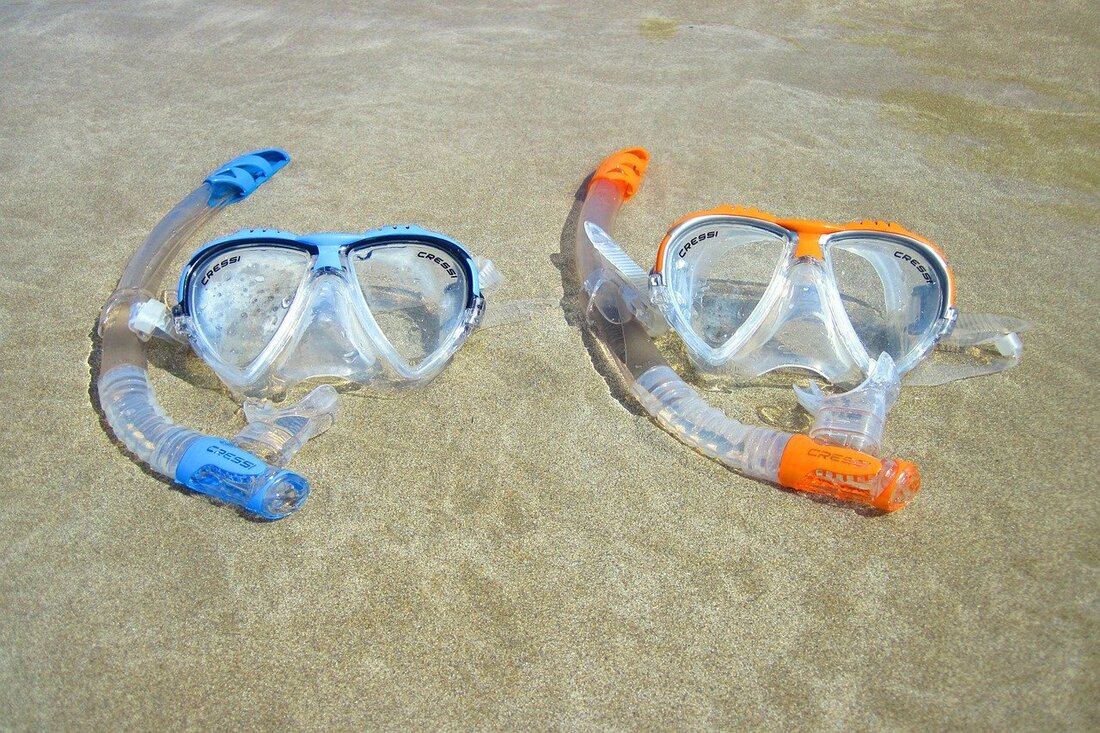 Think about the activities you will do when you travel under the "new normal"
Think about the activities you will do when you travel under the "new normal"
5. Tourist Attractions, Activities and Restaurants
When you are choosing where to visit after Coronavirus, think about the activities you plan to do, and where you will eat. You may have to re-think your options if in the past you have enjoyed massages, self-service buffets etc.
Now is the time to get off the beaten track. Visit lesser known destinations such as Georgia, or see lesser known tourist attractions. This will reduce the amount of people you will be in contact with, and it’s often nice to discover an up-and-coming destination.
Restaurants are a very high-touch industry and although they may be open, you need to be sure they are adhering to physical/social distancing, are following health guidelines, and ideally someone in the business has received Covid-safe training. You touch your mouth with utensils and you touch your mouth with cups/glasses; staff touch the same utensils/glasses. Avoid restaurants which have air con.
If you want an alcoholic drink, maybe order a bottle of beer instead of a glass of wine. To be extra cautious, pour your drink into your reusable travel mug and use your reusable travel cutlery. If you are concerned about physical distancing, hand over your Tupperware container and ask for take-out. You don’t have to eat in your accommodation, sit on the beach or find a seat with a view.
When you are choosing where to visit after Coronavirus, think about the activities you plan to do, and where you will eat. You may have to re-think your options if in the past you have enjoyed massages, self-service buffets etc.
Now is the time to get off the beaten track. Visit lesser known destinations such as Georgia, or see lesser known tourist attractions. This will reduce the amount of people you will be in contact with, and it’s often nice to discover an up-and-coming destination.
Restaurants are a very high-touch industry and although they may be open, you need to be sure they are adhering to physical/social distancing, are following health guidelines, and ideally someone in the business has received Covid-safe training. You touch your mouth with utensils and you touch your mouth with cups/glasses; staff touch the same utensils/glasses. Avoid restaurants which have air con.
If you want an alcoholic drink, maybe order a bottle of beer instead of a glass of wine. To be extra cautious, pour your drink into your reusable travel mug and use your reusable travel cutlery. If you are concerned about physical distancing, hand over your Tupperware container and ask for take-out. You don’t have to eat in your accommodation, sit on the beach or find a seat with a view.
Tourist attractions may be open, but how are they handling physical/social distancing? What will tourist hotspots such as Angkor Wat, Eiffel Tower, Vatican, The Colosseum, Taj Mahal, Egyptian Pyramids etc do to ensure your safety? Until a vaccine is found, it’s best to stay away from any activity which attracts thousands of visitors. Seek out a less visited but equally beautiful temple at Angkor Wat, swim in a lesser known waterfall, sunbathe on a quieter beach etc.
Activities – Activities which are perfect for staying safe are, bicycle rides, horse riding, strolling through a National Park or walking a coastal path.
Snorkelling is only 100% safe if you have your own mask and snorkel. The hygiene surrounding rental masks and snorkels doesn’t bear thinking about, so it’s safer to buy your own and take it with you. Having your own will give you freedom to snorkel anywhere you want, whenever you want. If you go on a snorkelling trip, at least you know no one else has breathed into your equipment and you have washed it properly.
Conservation Centres need your help as they rely on tourists’ money to continue their amazing work. Visit animal rehabilitation centres (eg Sepilok Orangutan Sanctuary), Wildlife Trusts, Wildlife Parks, Safari Parks, Nature Reserves, but before you do, make sure you research to ensure they are ethical; too many places claim to help the animals and they don’t which gives the industry a bad name.
6. Scuba Diving
Activities – Activities which are perfect for staying safe are, bicycle rides, horse riding, strolling through a National Park or walking a coastal path.
Snorkelling is only 100% safe if you have your own mask and snorkel. The hygiene surrounding rental masks and snorkels doesn’t bear thinking about, so it’s safer to buy your own and take it with you. Having your own will give you freedom to snorkel anywhere you want, whenever you want. If you go on a snorkelling trip, at least you know no one else has breathed into your equipment and you have washed it properly.
Conservation Centres need your help as they rely on tourists’ money to continue their amazing work. Visit animal rehabilitation centres (eg Sepilok Orangutan Sanctuary), Wildlife Trusts, Wildlife Parks, Safari Parks, Nature Reserves, but before you do, make sure you research to ensure they are ethical; too many places claim to help the animals and they don’t which gives the industry a bad name.
6. Scuba Diving
|
If you are a scuba diver, this is another minefield of information, and there is far too much information to list in this article. PADI have run a webinar for dive professionals (which will include dive masters, instructors and dive centre managers) to certify staff are “Covid Compliant”. Feel free to ask your chosen dive centre (whether it’s PADI, SSI or another organisation), if their staff have this certification, and what this means. For people with their own equipment, scuba diving will be much easier, but you should still ask your chosen dive centre how they plan to be Covid-compliant for your own peace of mind as well as clean your own equipment properly, according to manufacturer guidelines. |
It’s important to ask your dive centre how they are sanitising the rental equipment between uses. The main ways of contracting Coronavirus are through your eyes, mouth and nose, and scuba diving without your own equipment exposes you to all of this. Even if you don’t have your own equipment, investing in a mask and snorkel will help, and you can use these items for many years ahead.
First and foremost, if you had Coronavirus, make sure you see your doctor before you travel. Covid-19 affects the lungs and respiratory, and if your lungs have been attacked by a virus, you may have serious problems diving, even if you no longer feel symptoms. It's advised not to dive for at least one to three months after recovery, and you must obtain a medical certificate to clear you for diving after this period.
If you dive too soon, you could damage your lungs for life and never dive again. It’s not worth taking the risk.
A reputable dive centre will ask you to complete and sign forms to confirm you have not had the virus, as well as completing a pre-dive health questionnaire. Don’t ever be tempted to say you haven’t had Covid-19, because if something happens to you underwater, it’s not just your life in jeopardy …the dive guide/instructor will have to live with the outcome for the rest of their lives (death is the worst case scenario!). Not telling the truth on your medical forms also invalidates insurance!
DAN (Divers Alert Network) suggest using “household disinfecting wipes” to clean your rental snorkel, regulator mouthpiece, BCD oral inflator and the inside of your mask, then rinsing with fresh water before use if you want to be extra cautious. However this doesn’t clean inside the hose or BCD.
NEVER share a water cup on a dive boat as is customary for divers. Take your own refillable water bottle to ensure you remain hydrated.
Pin this post for future reference!
